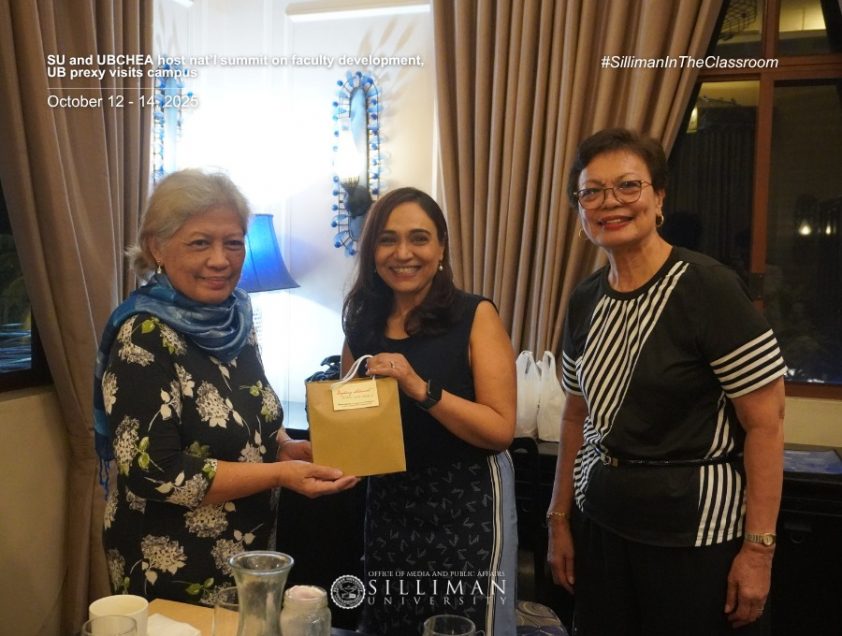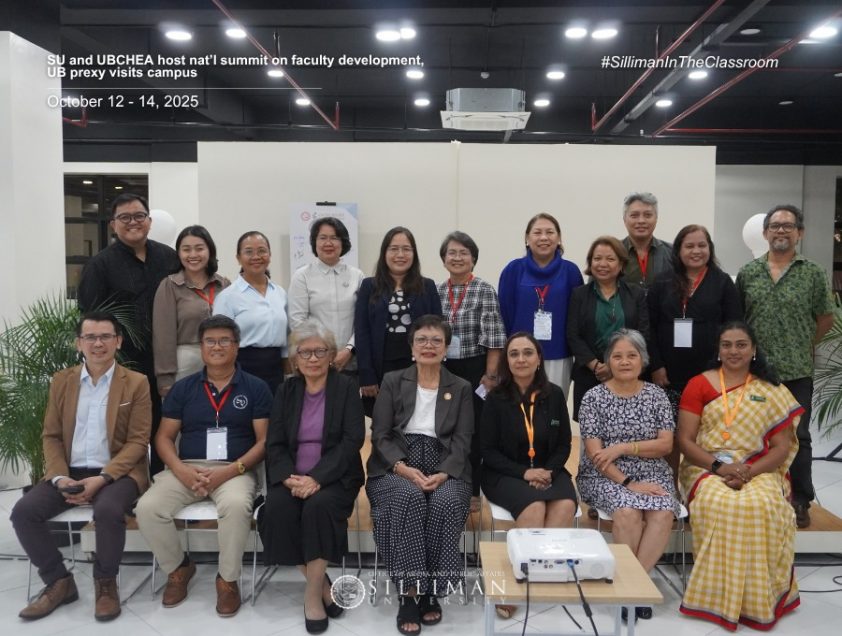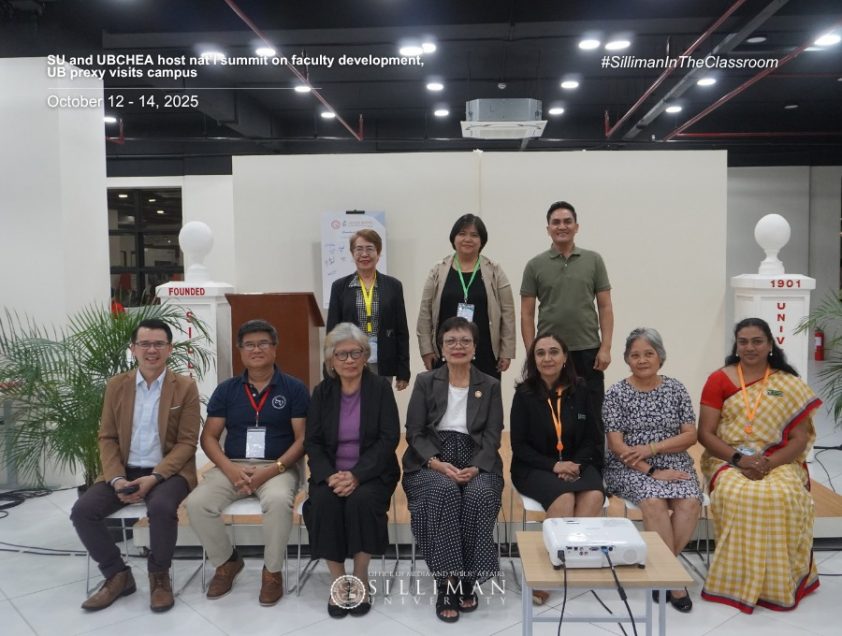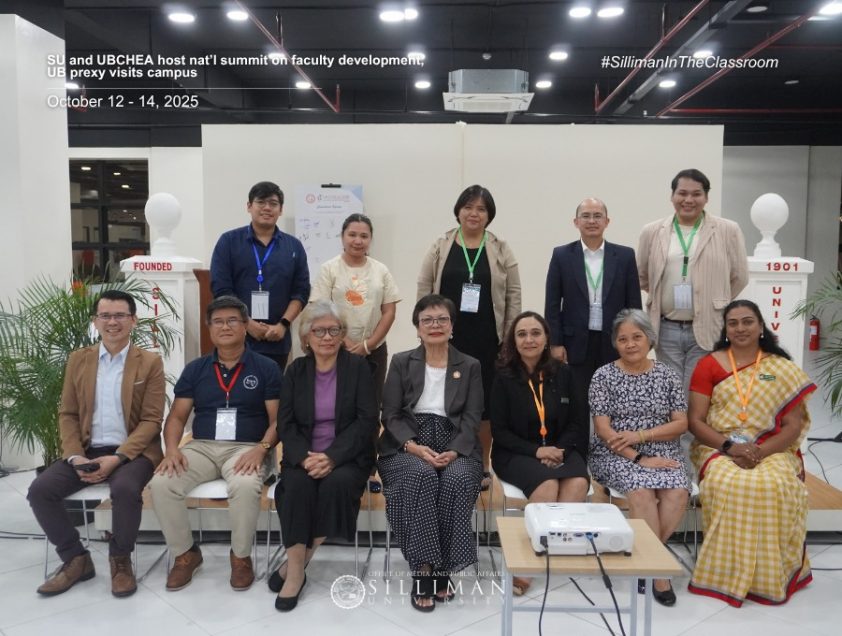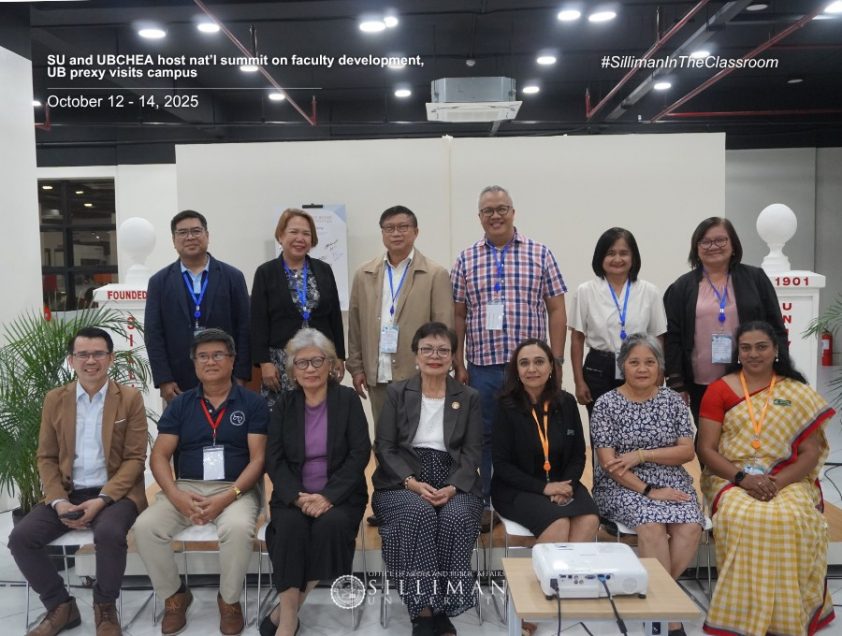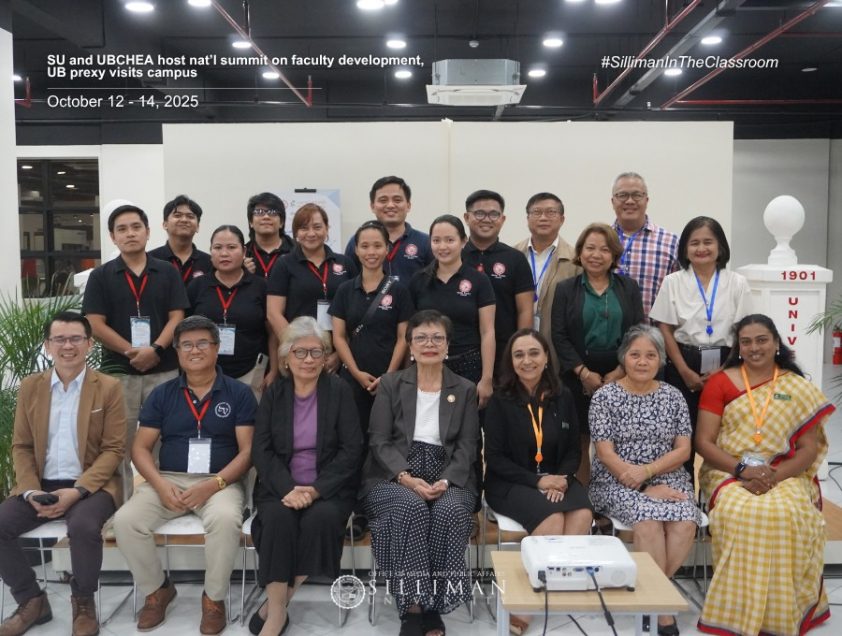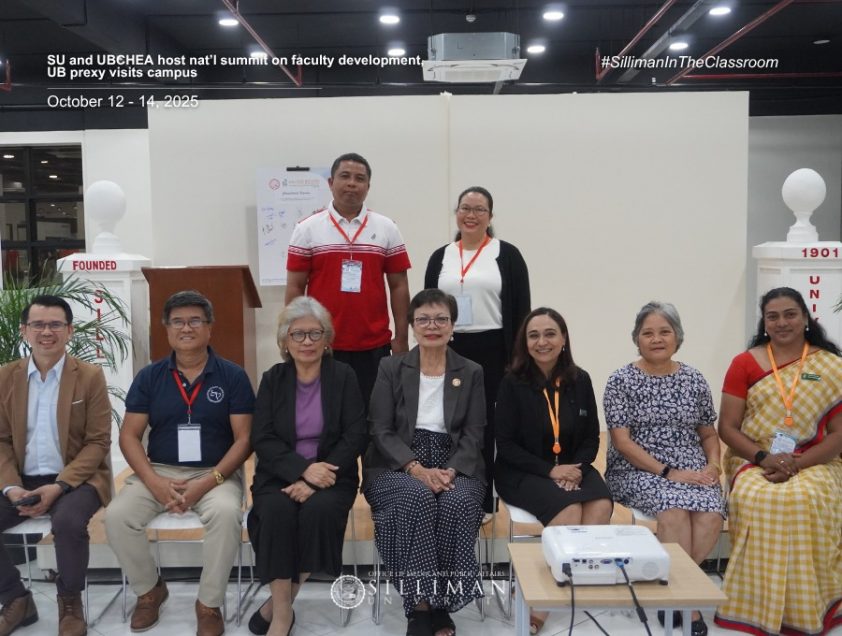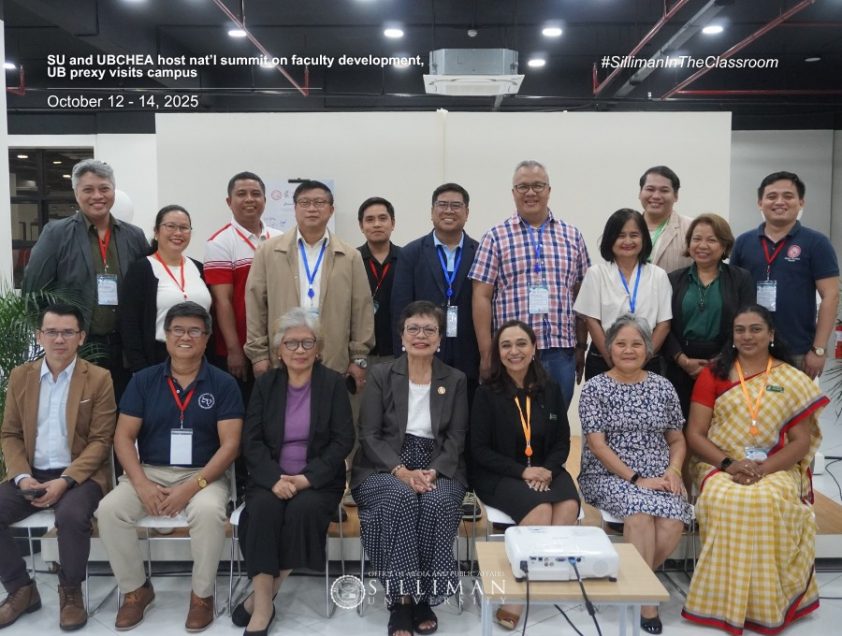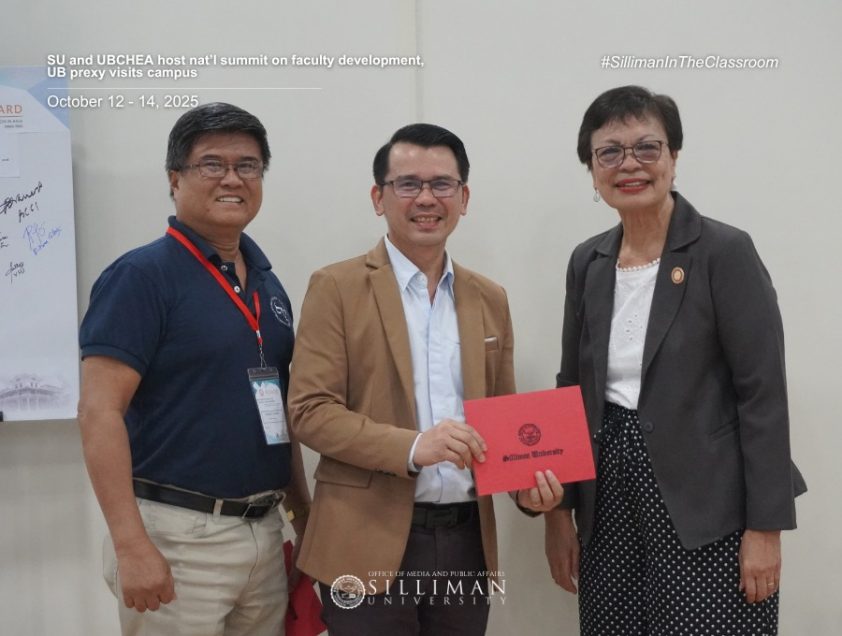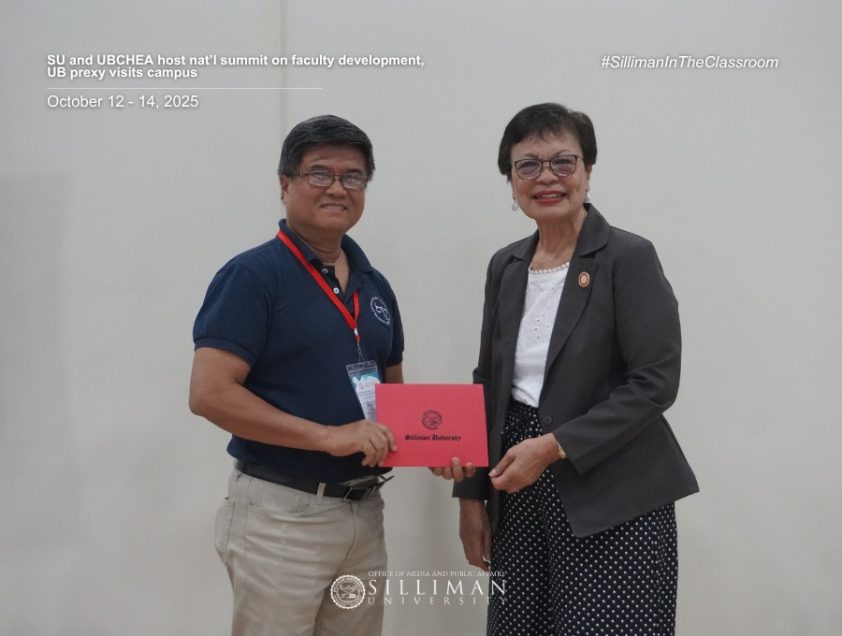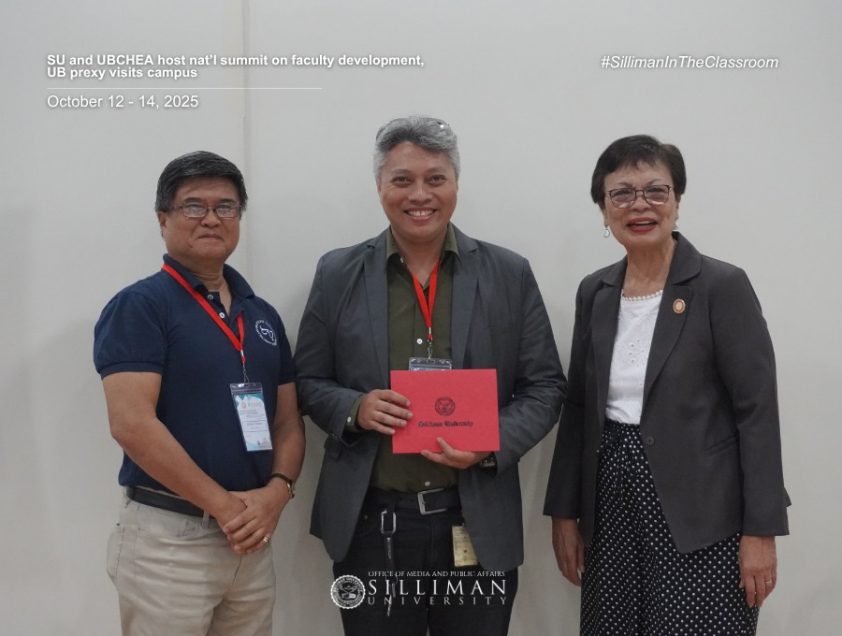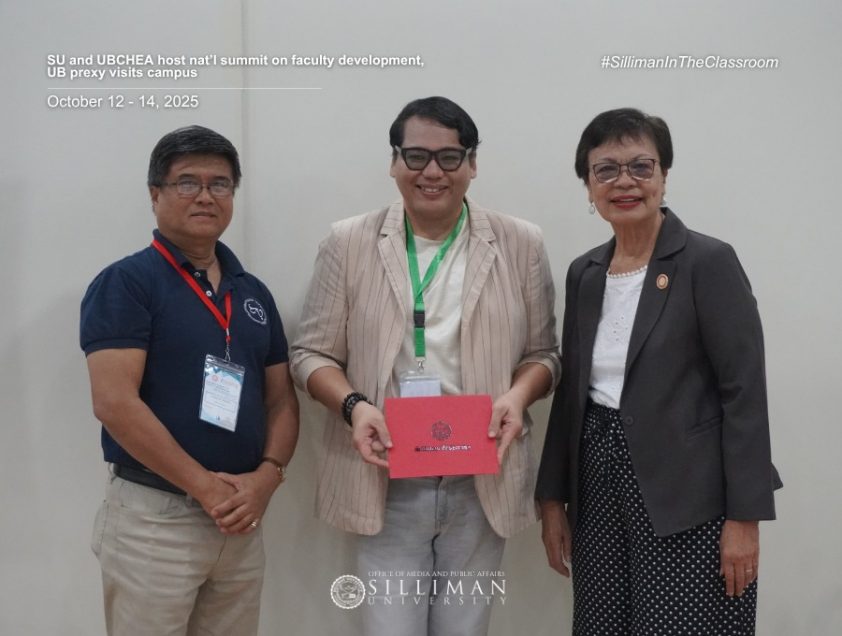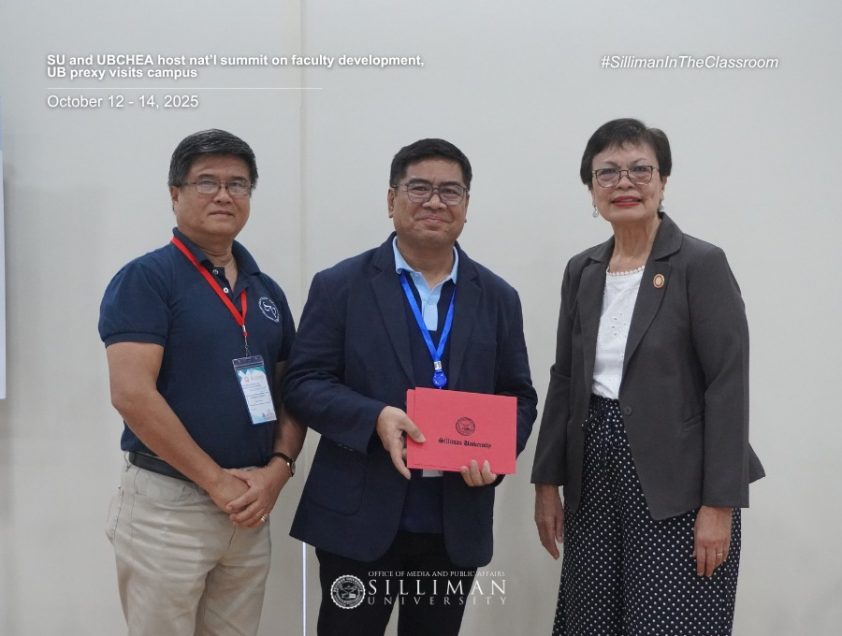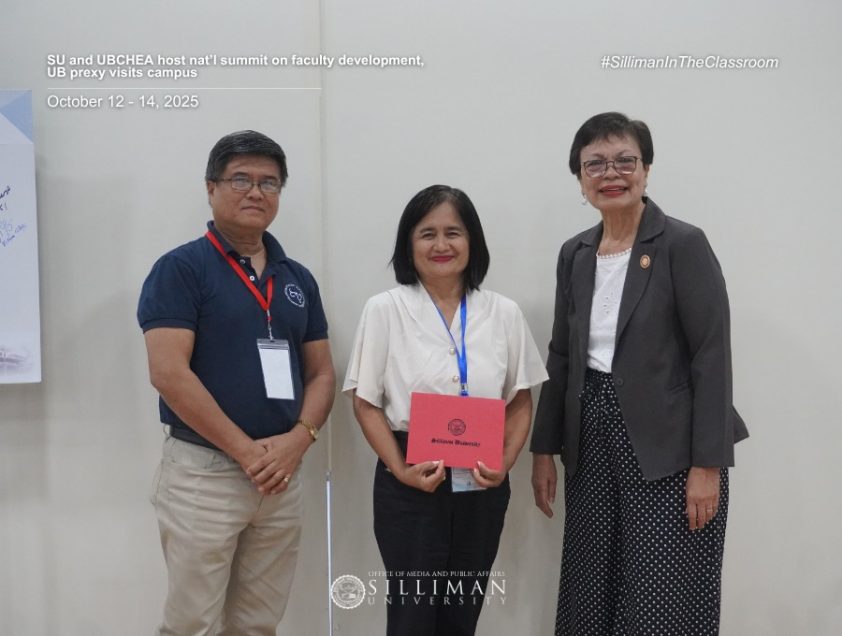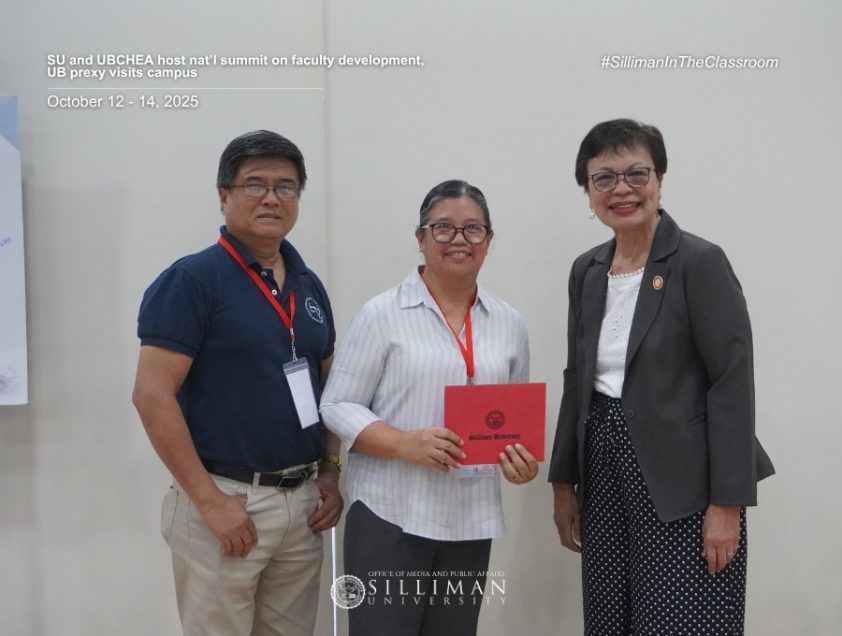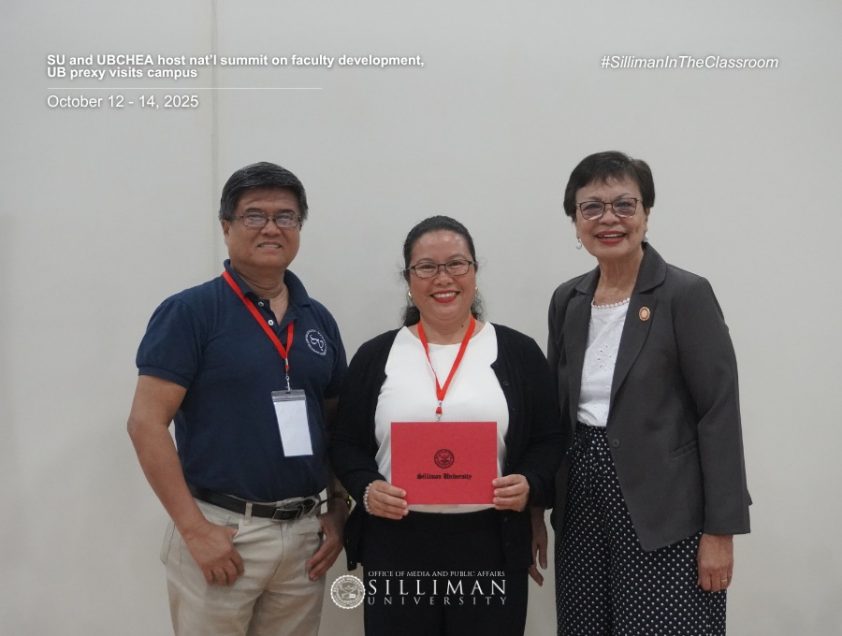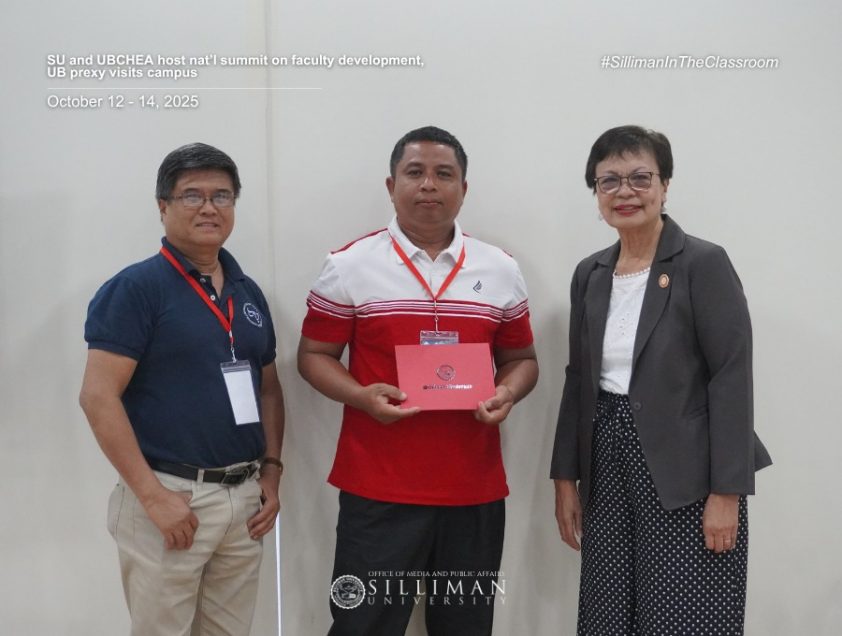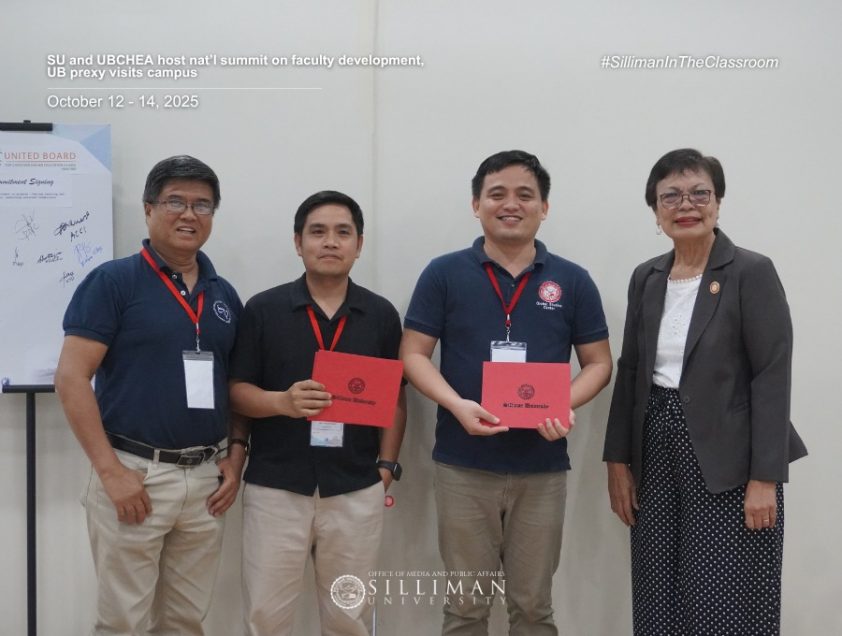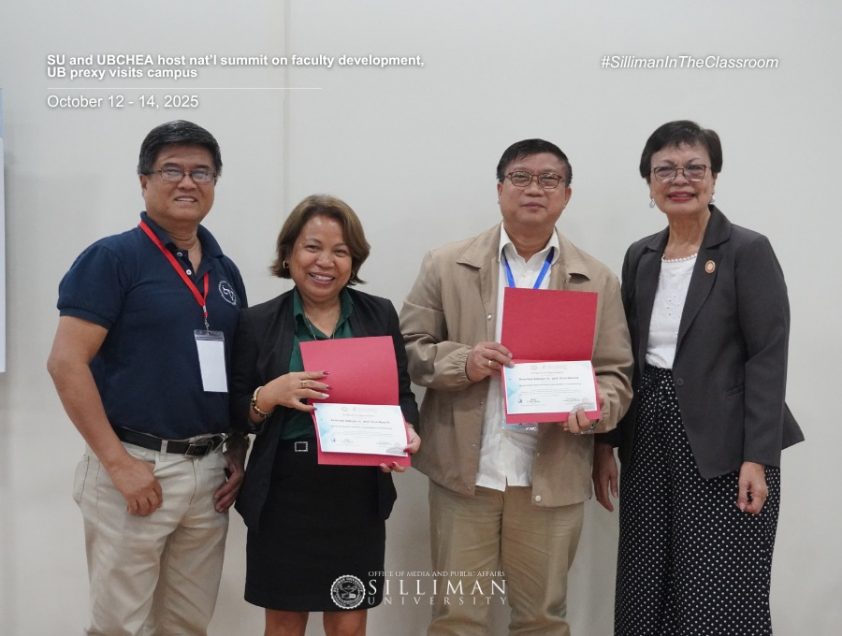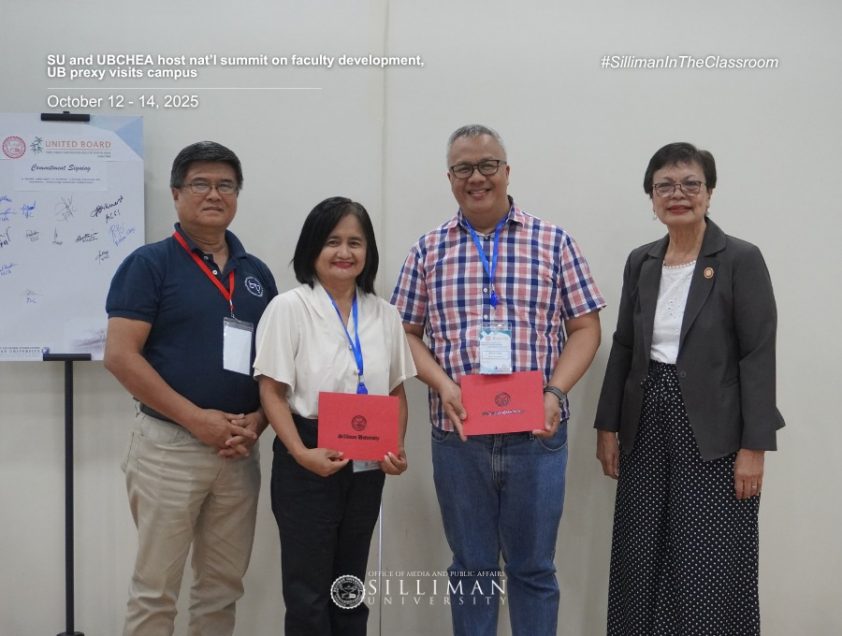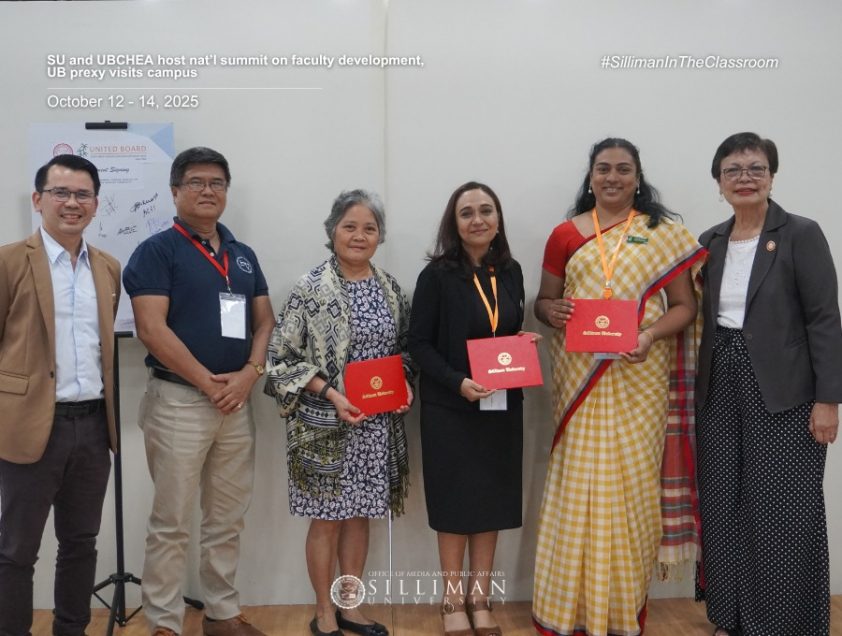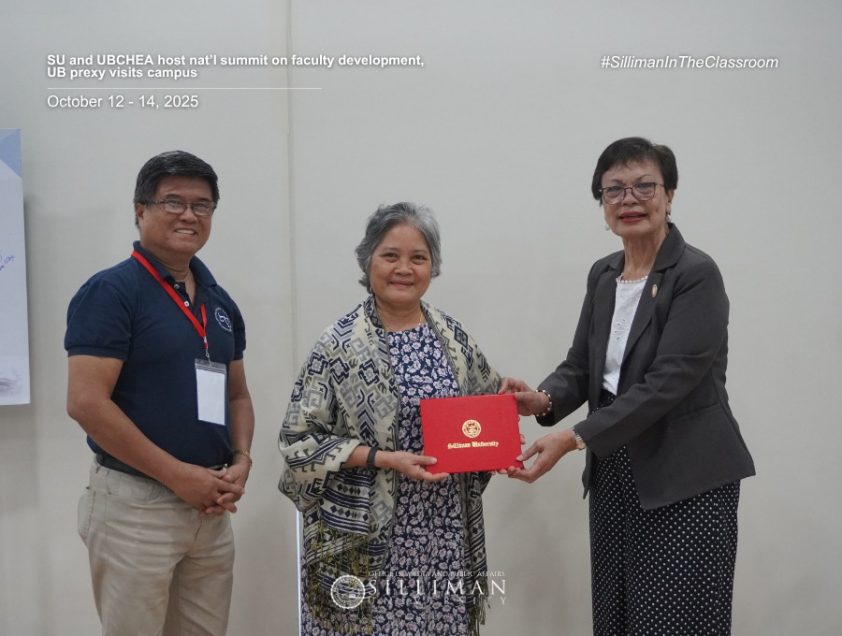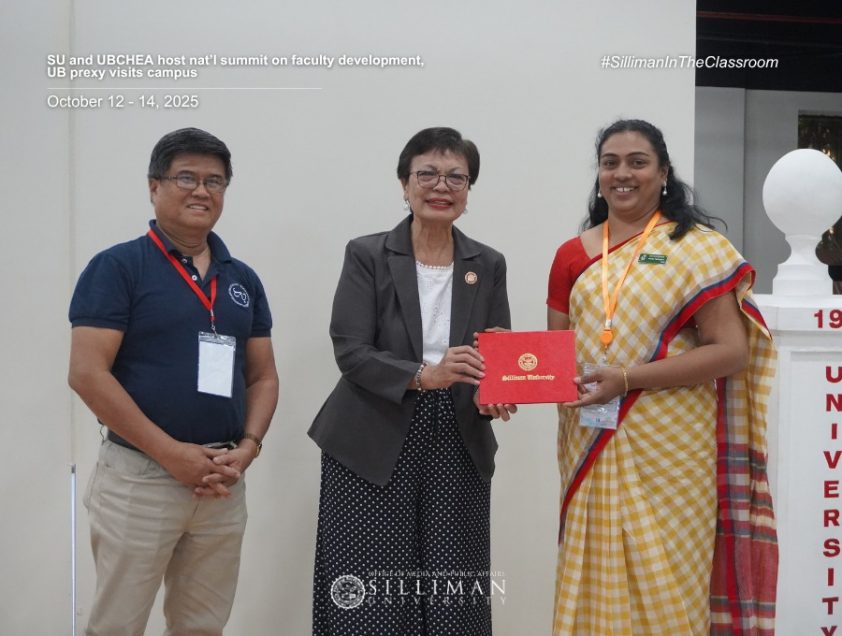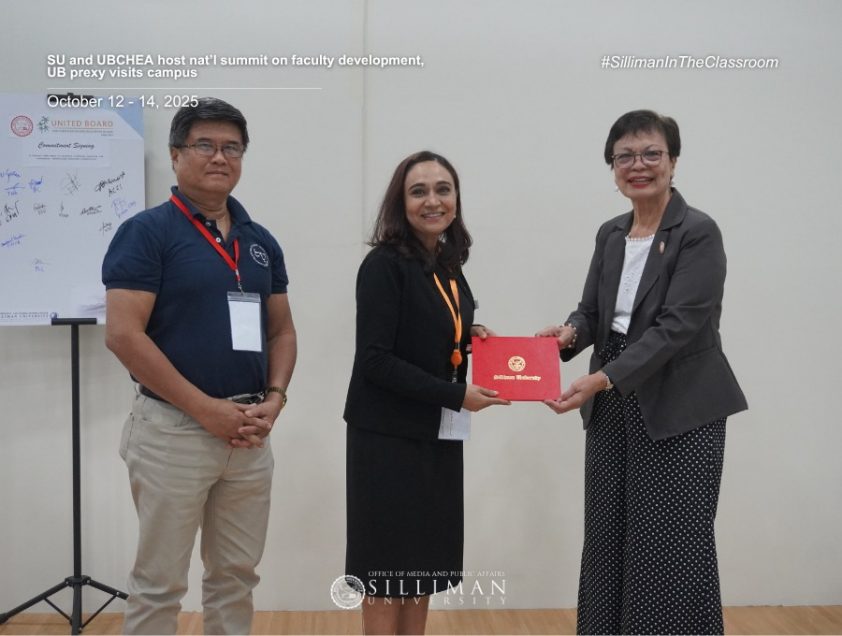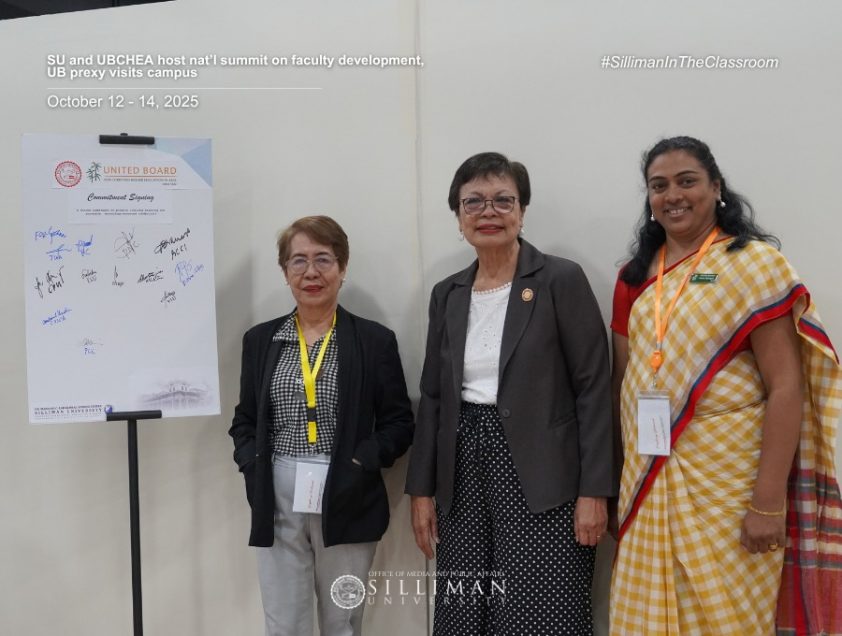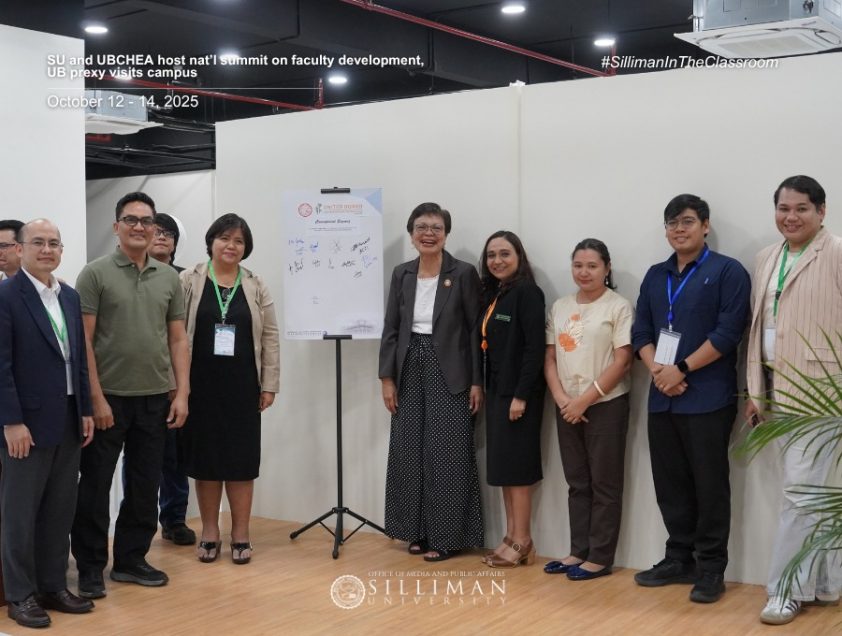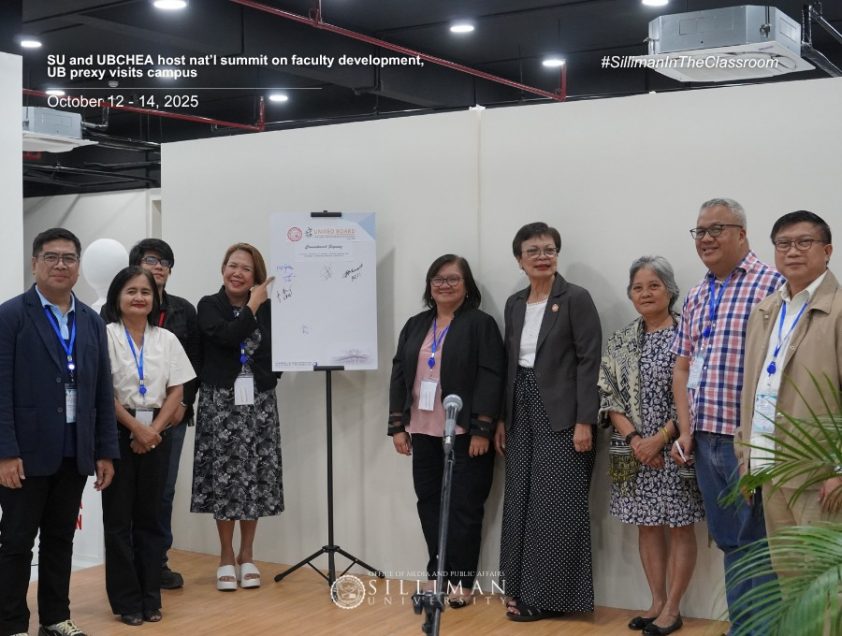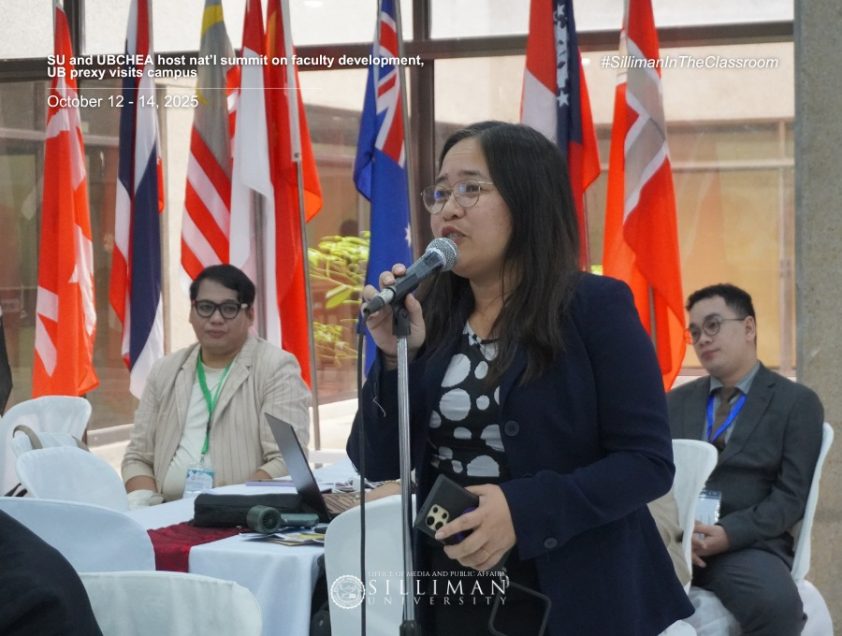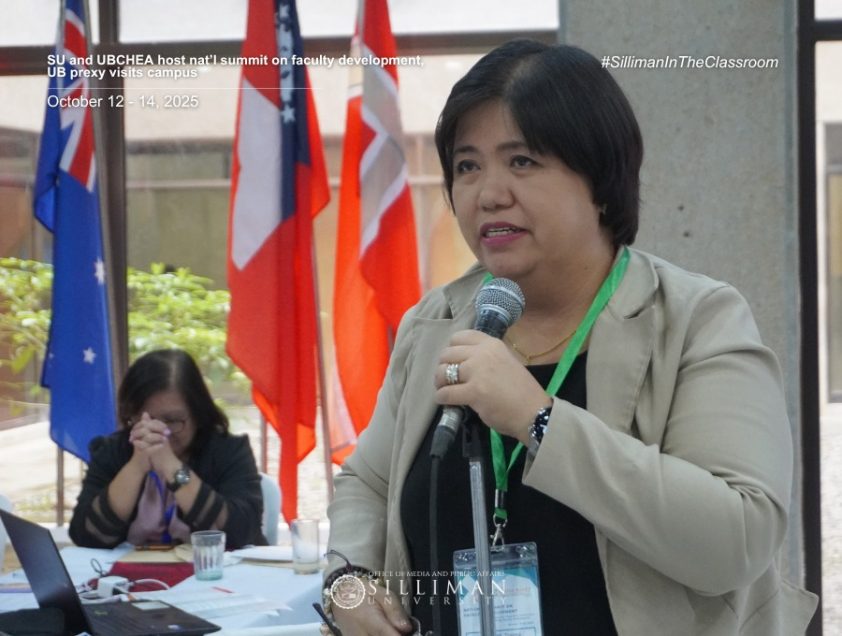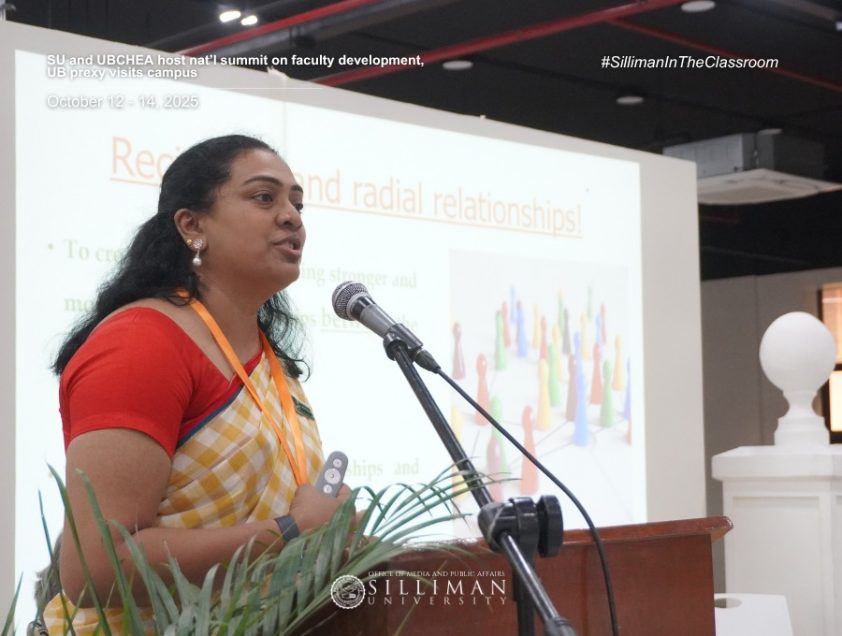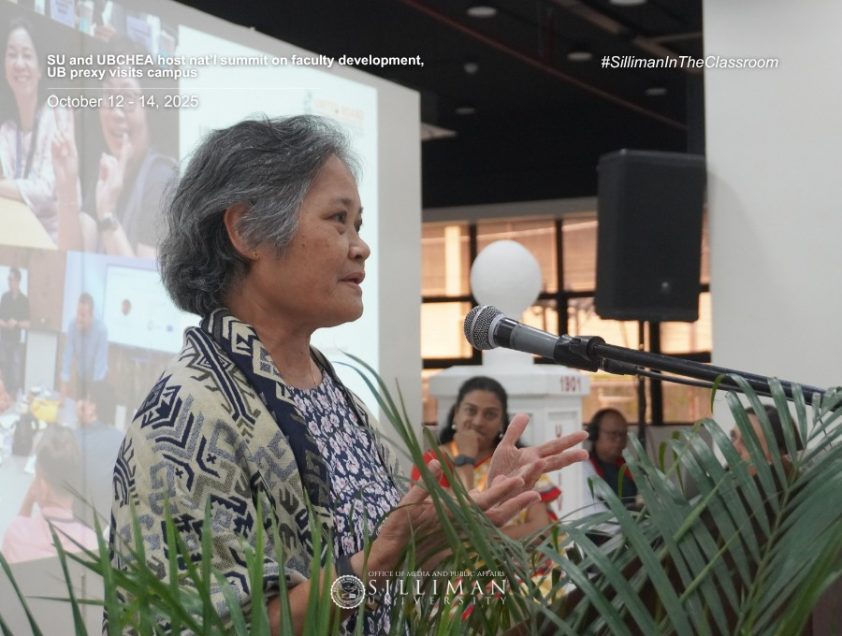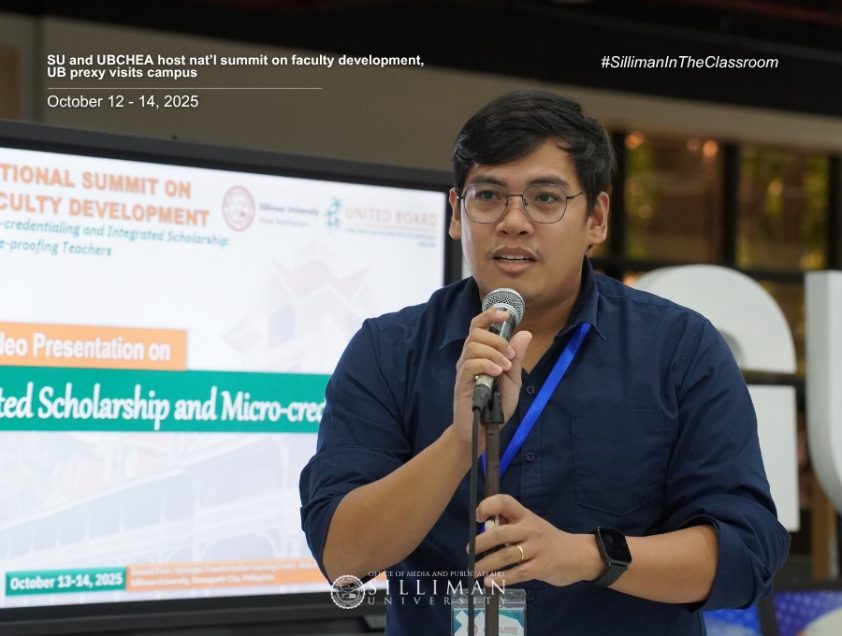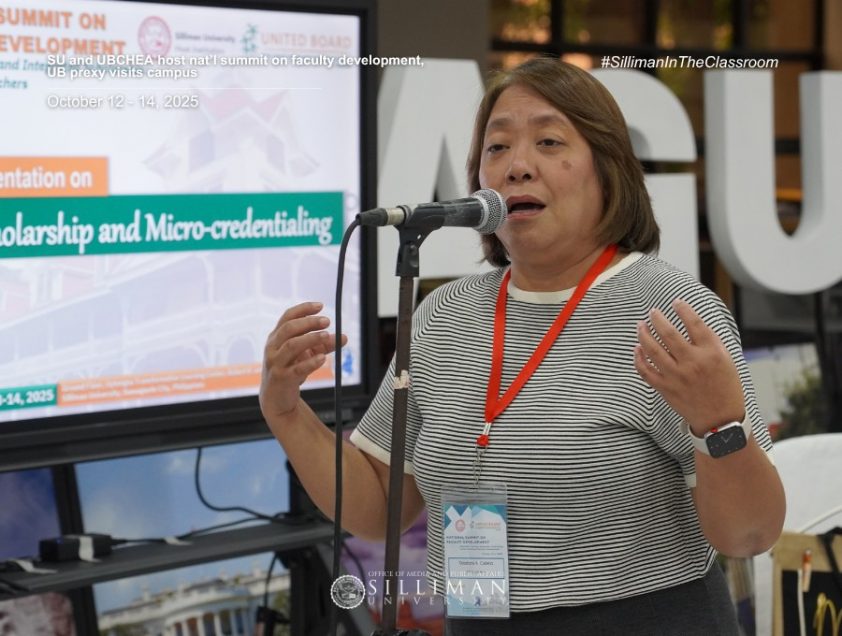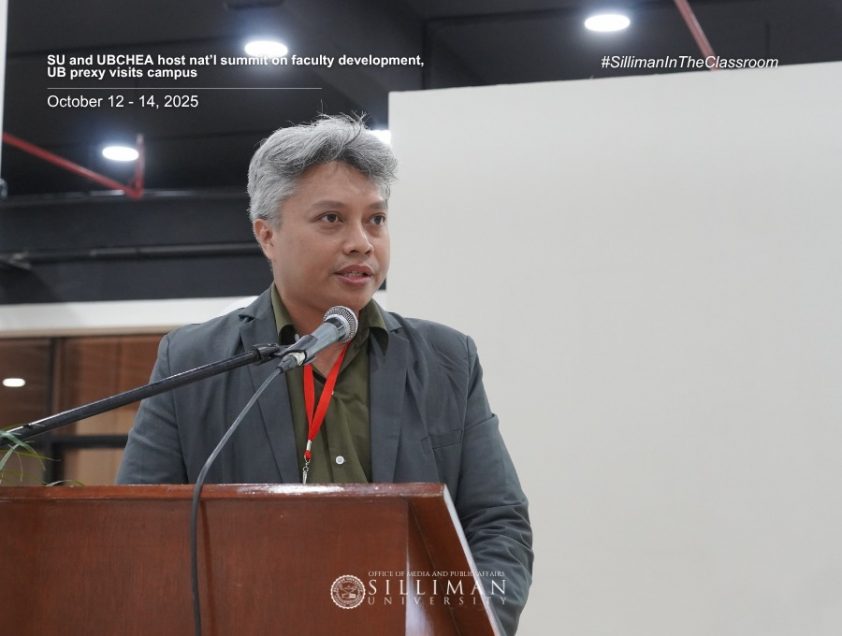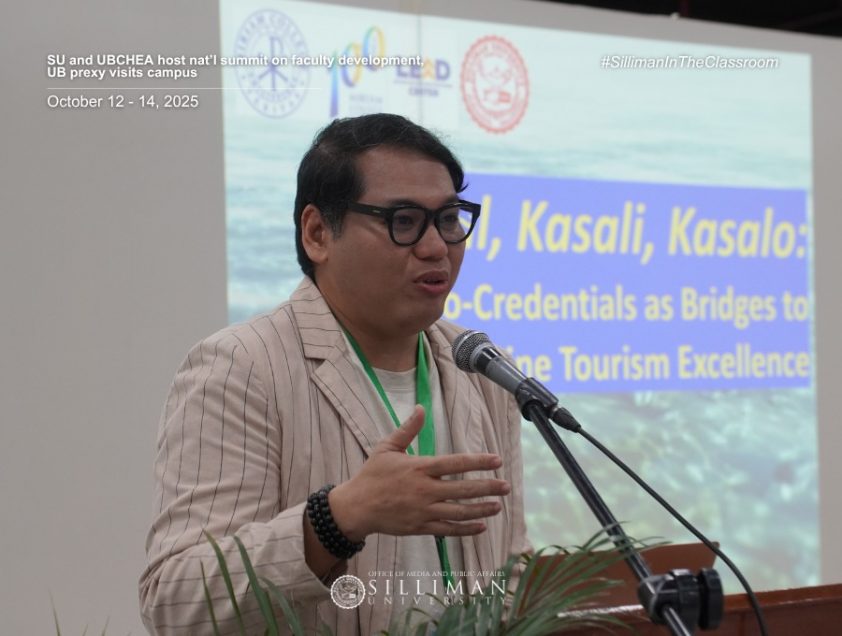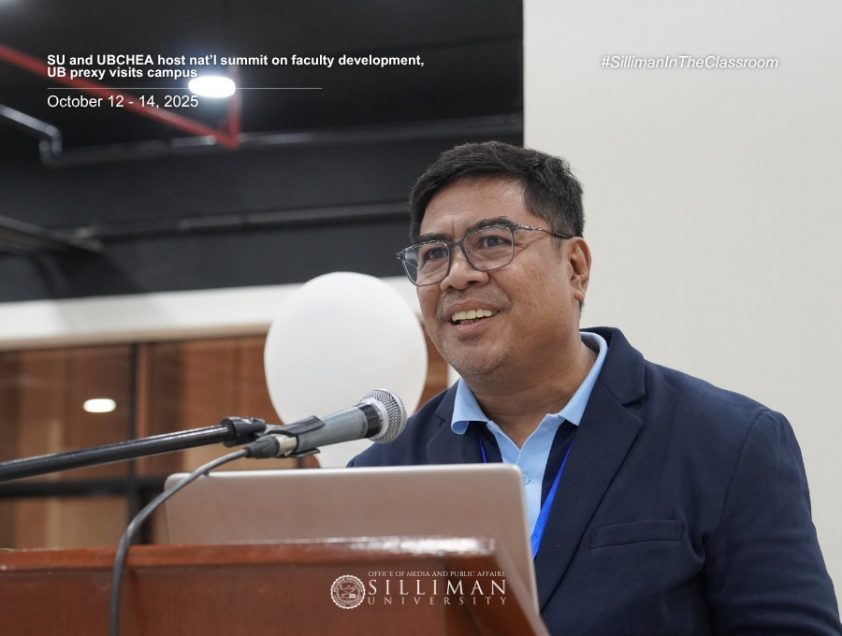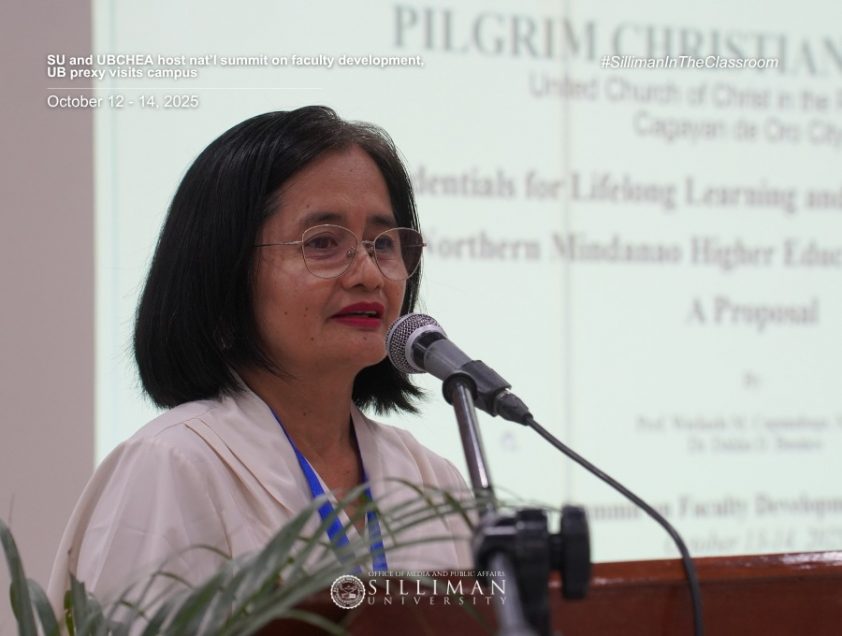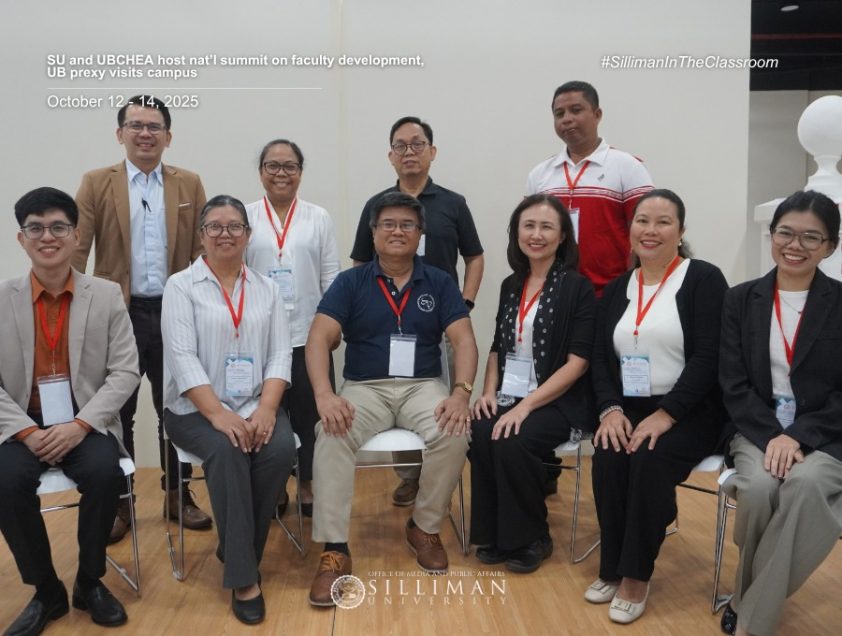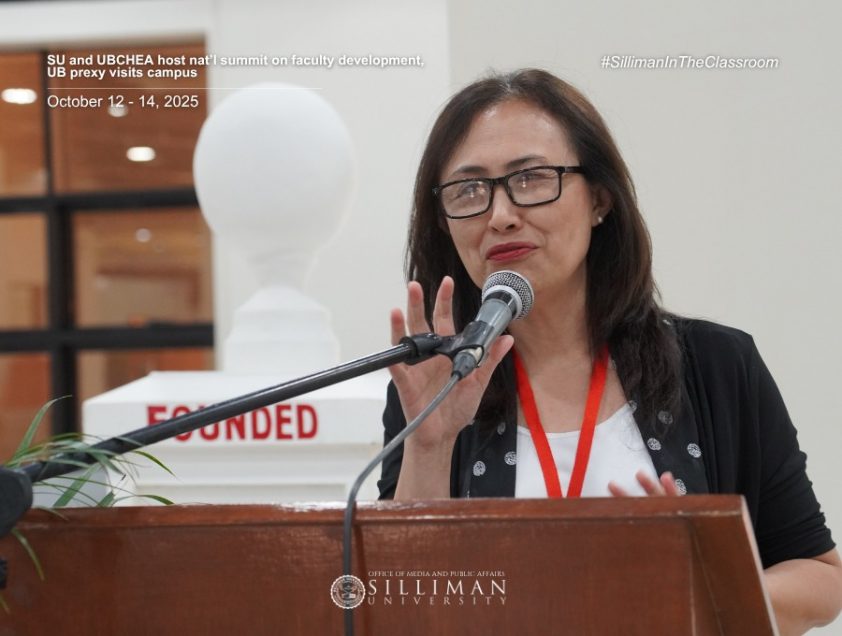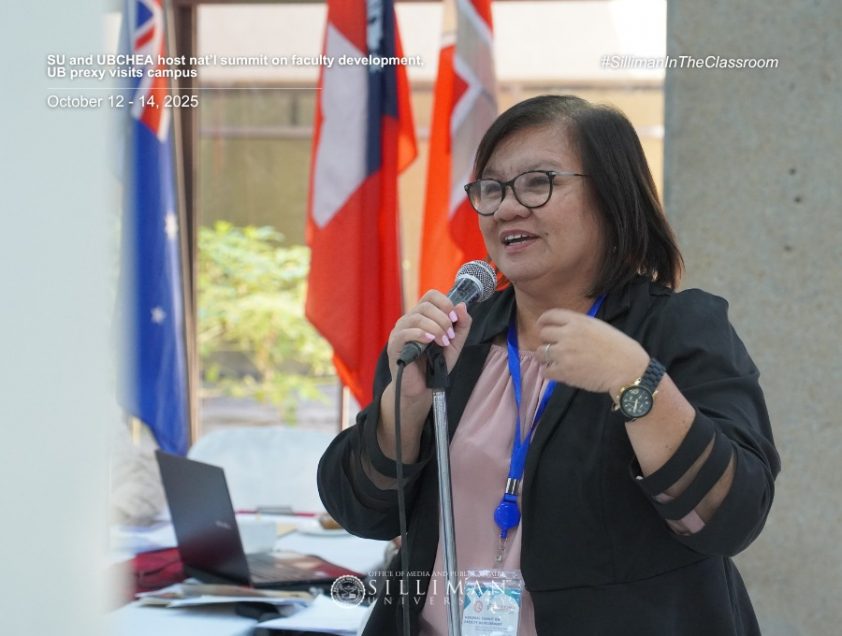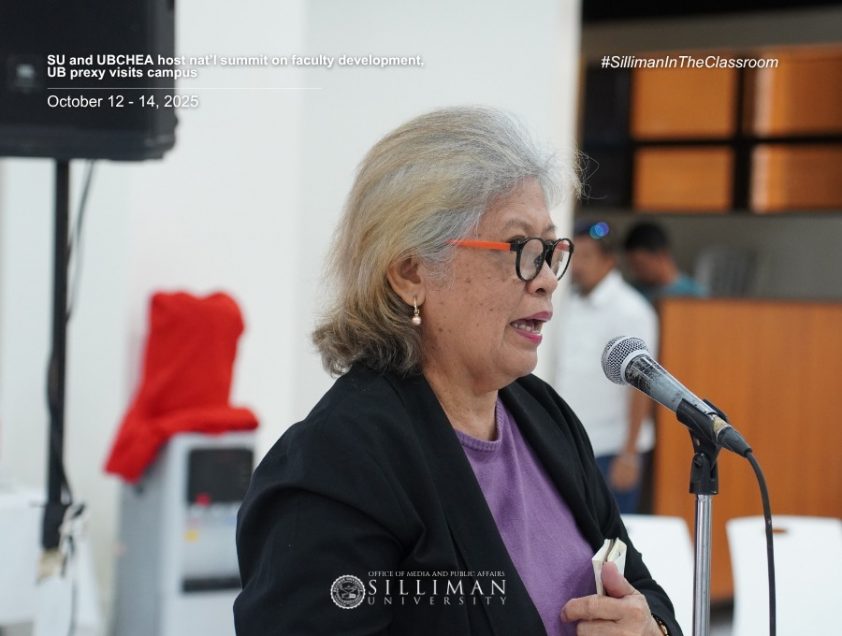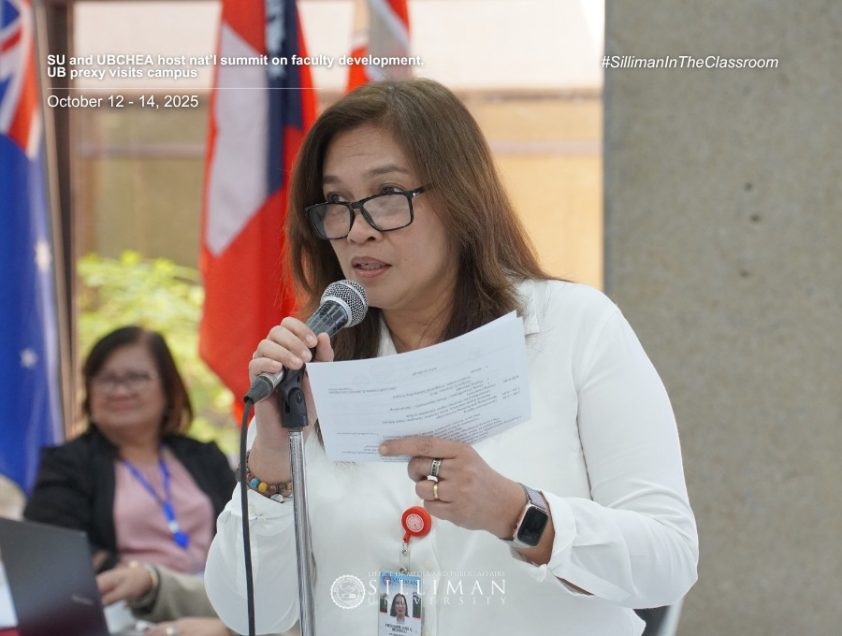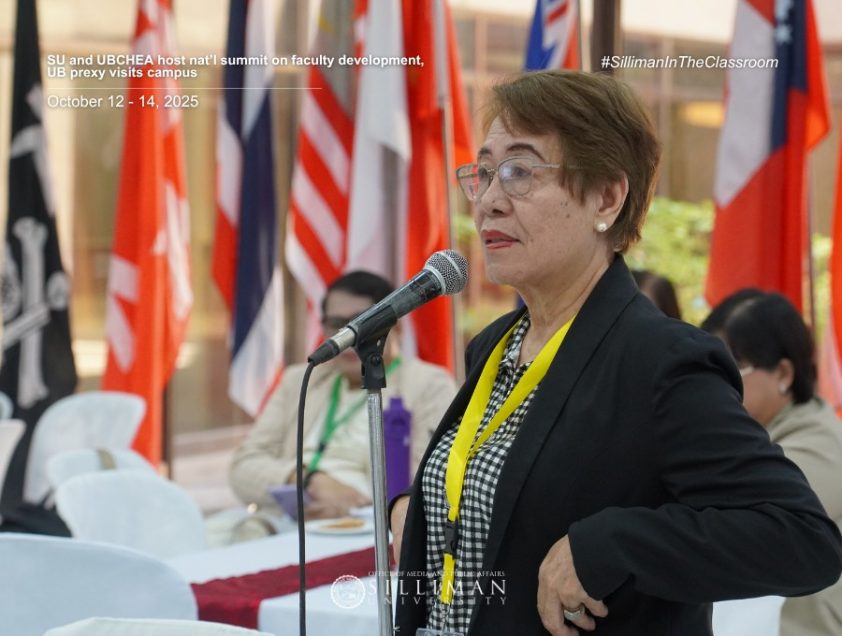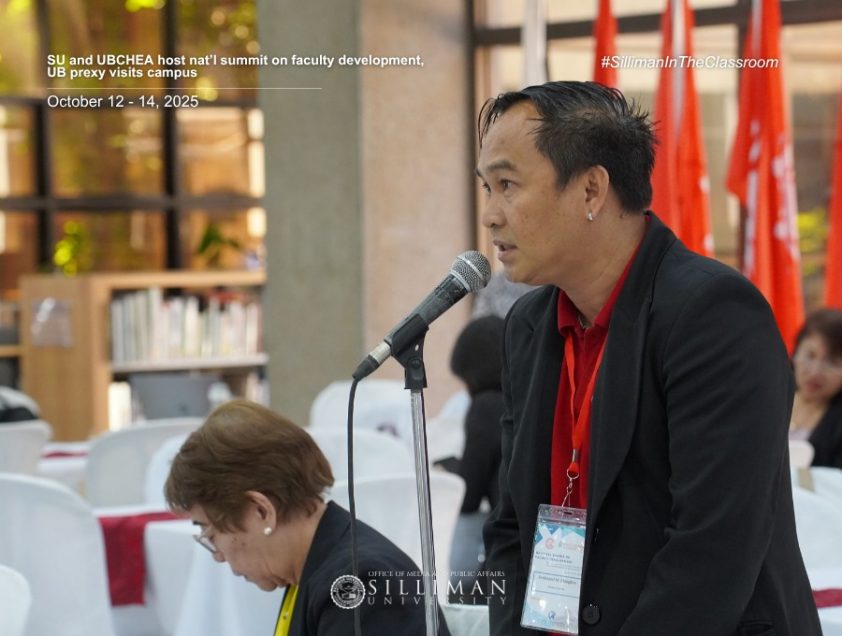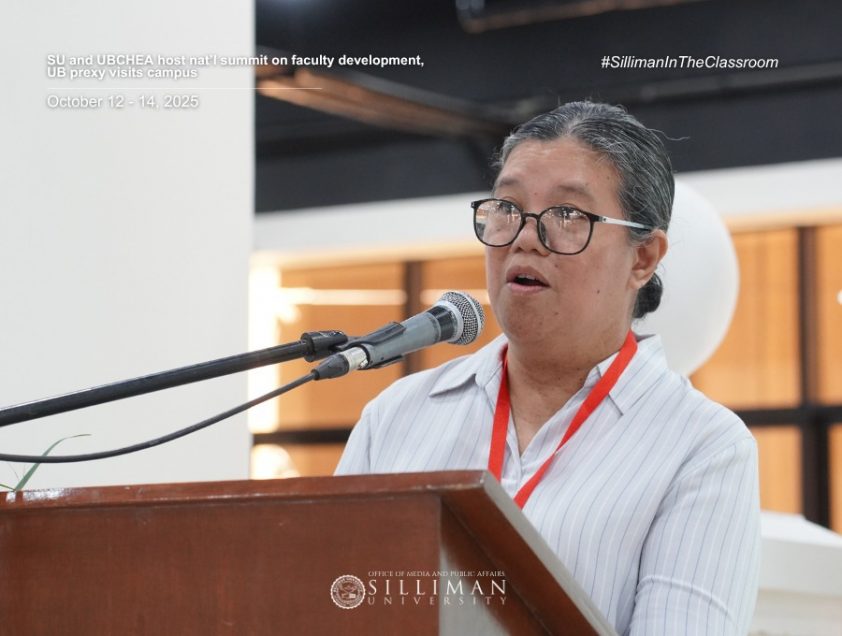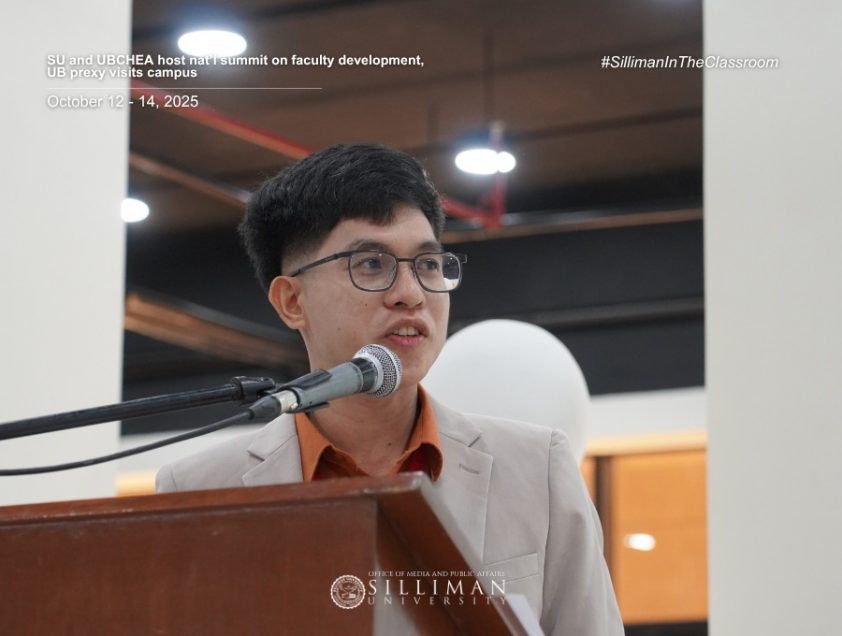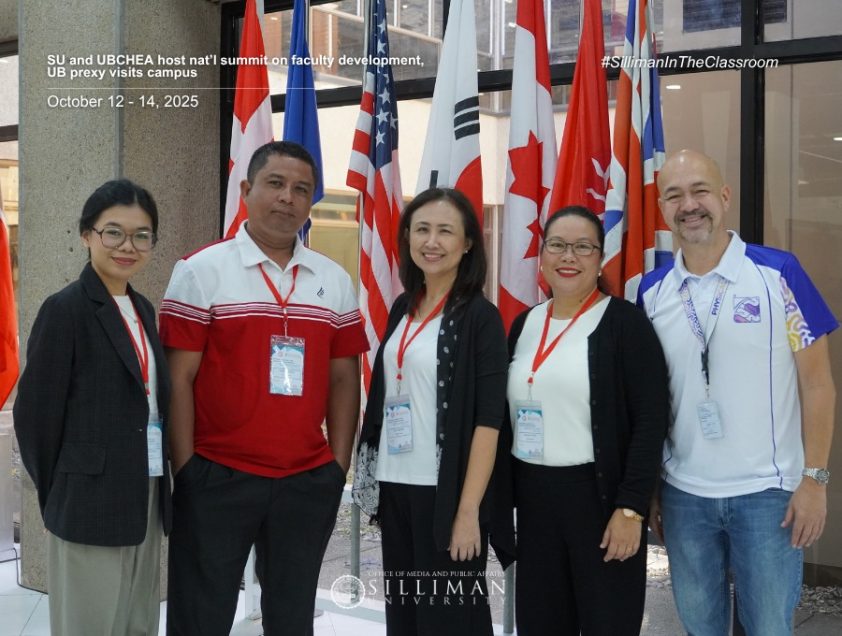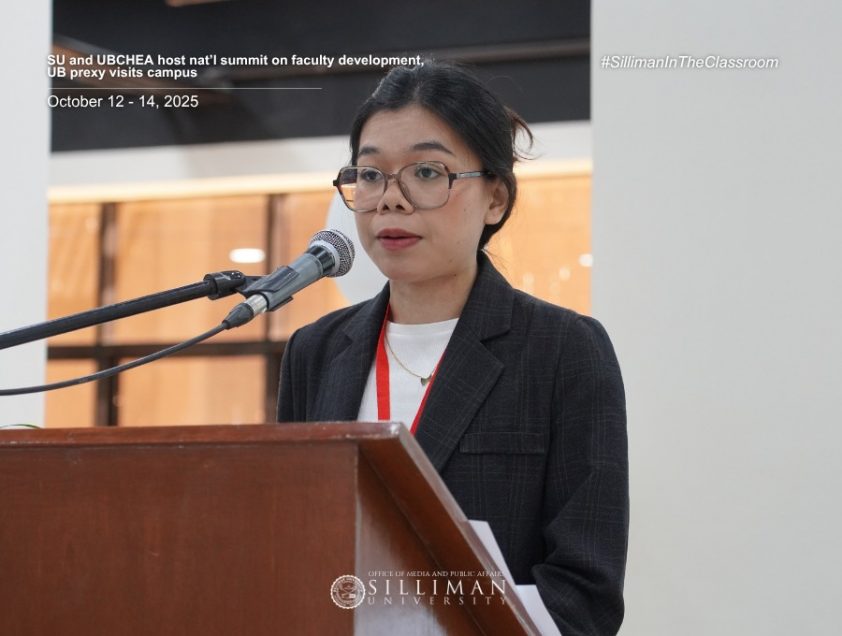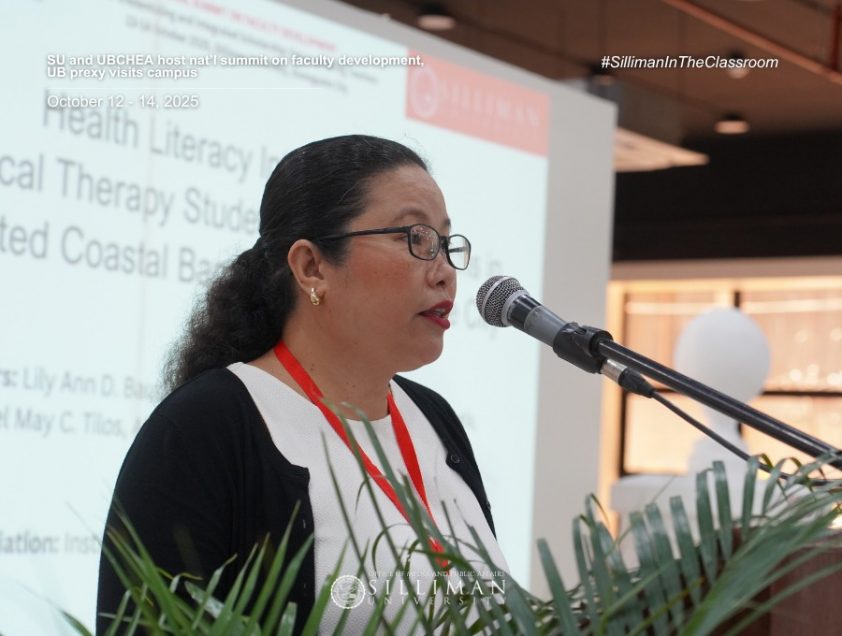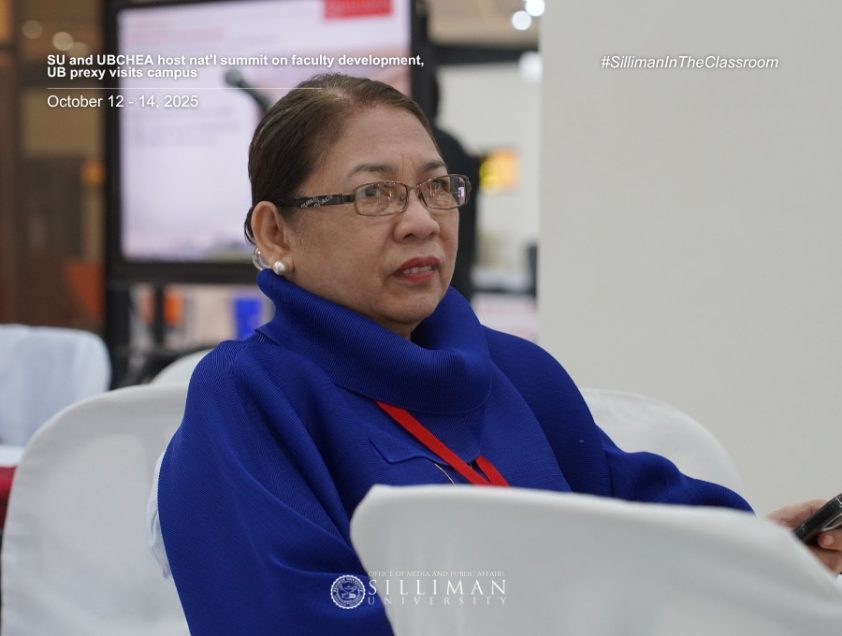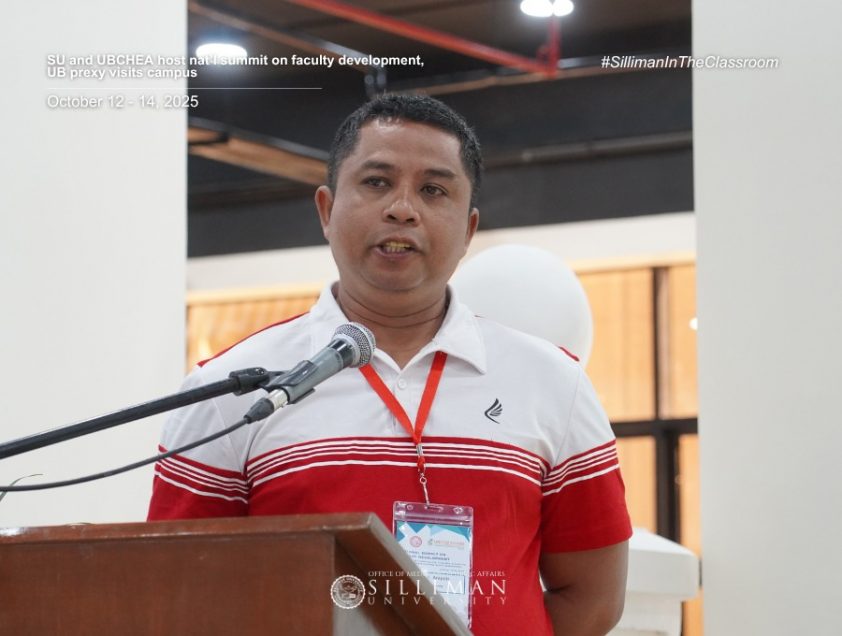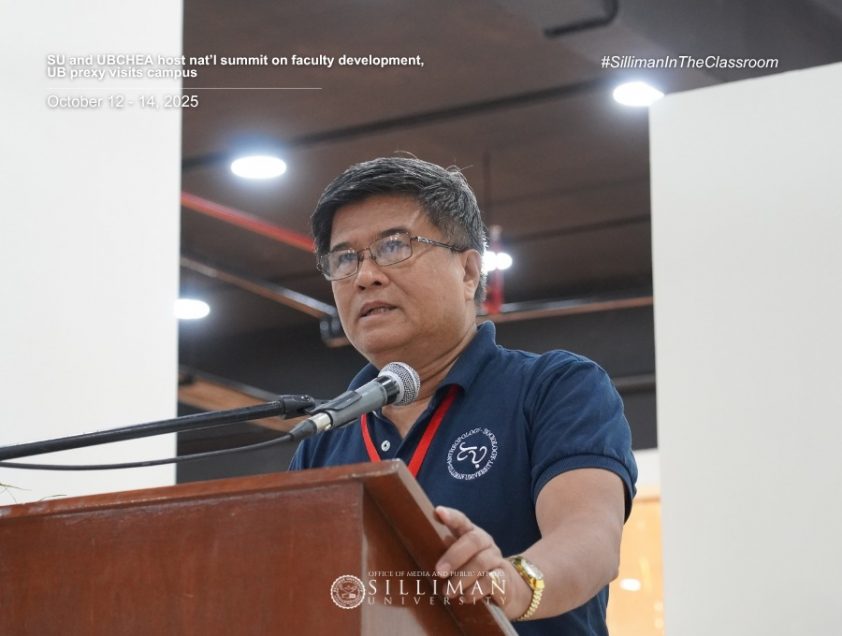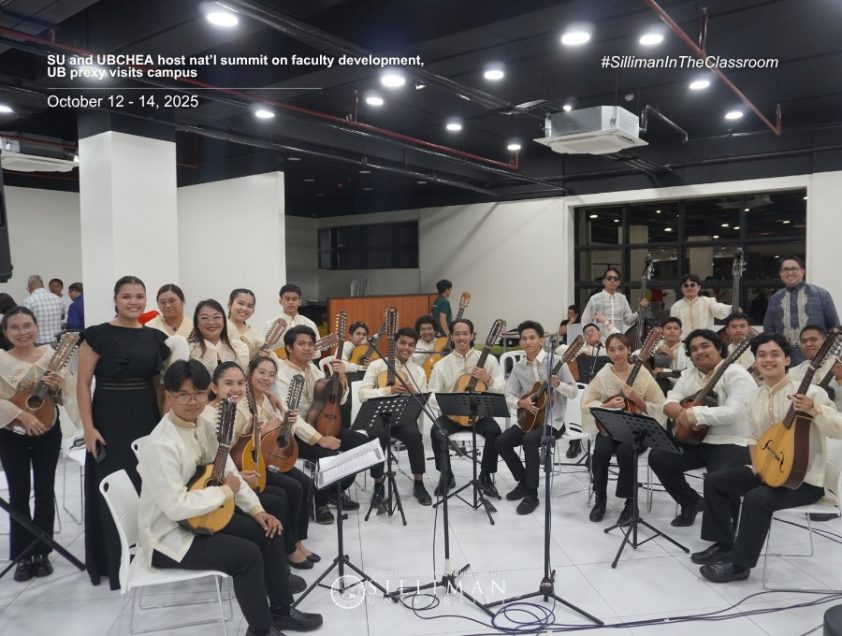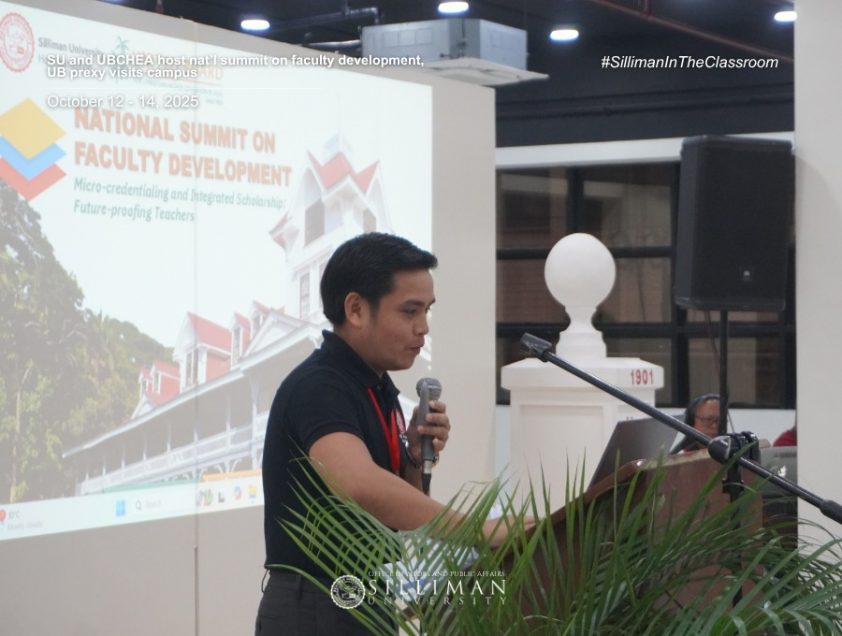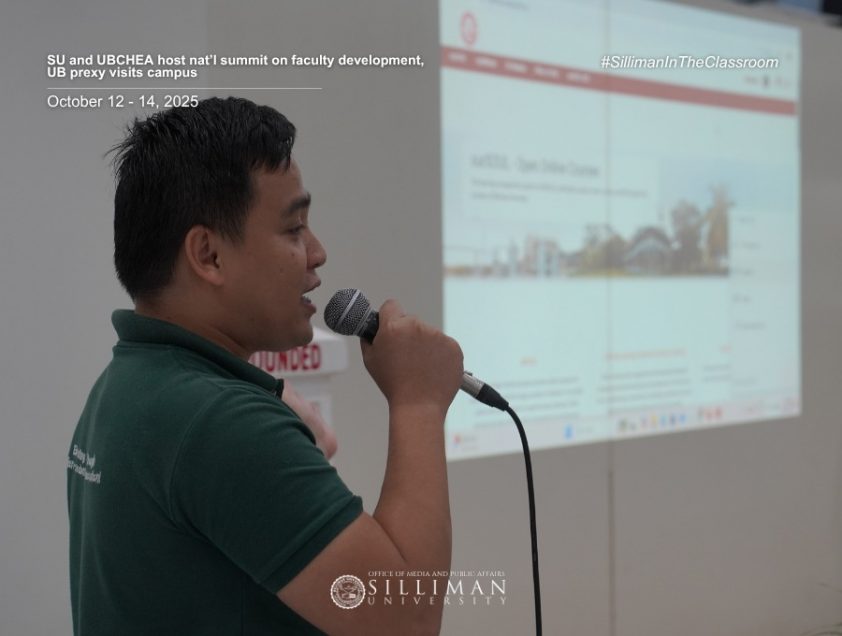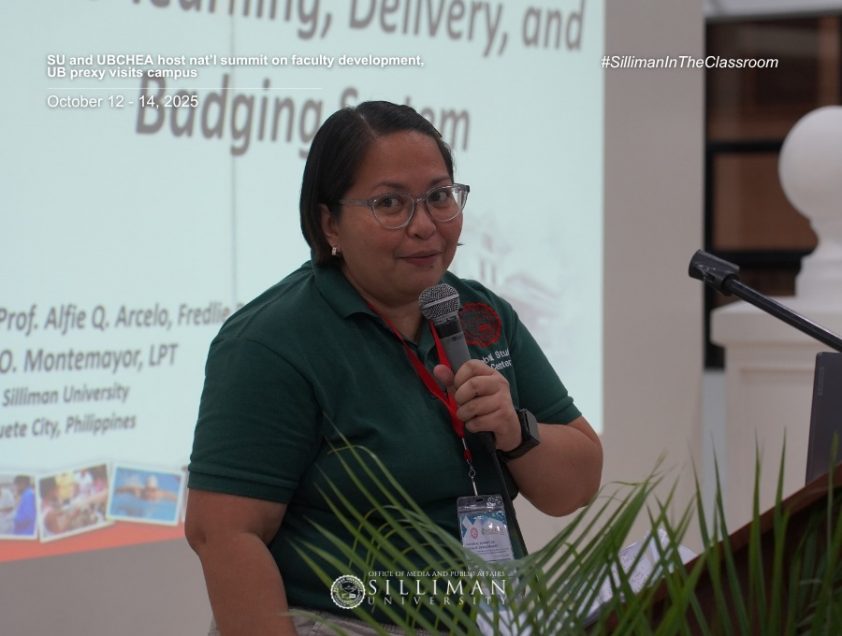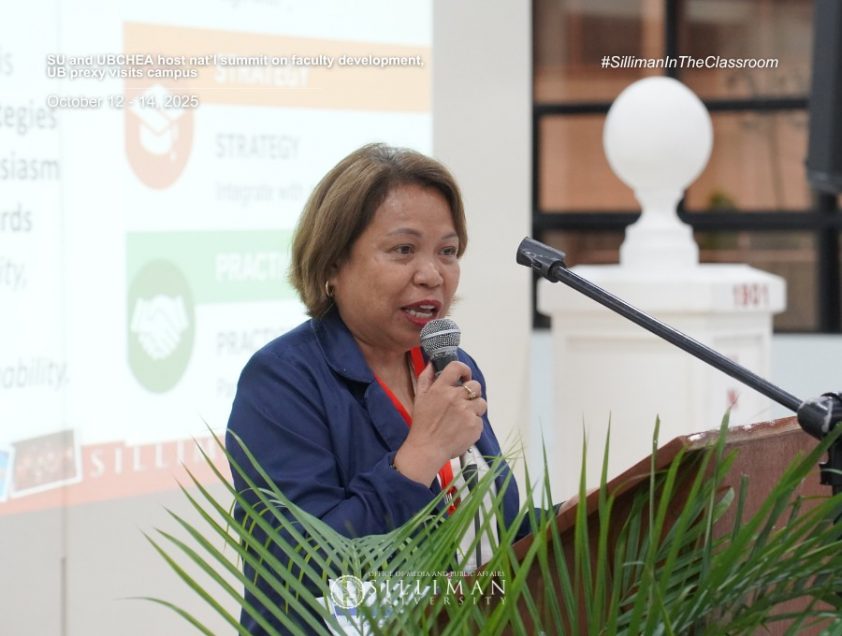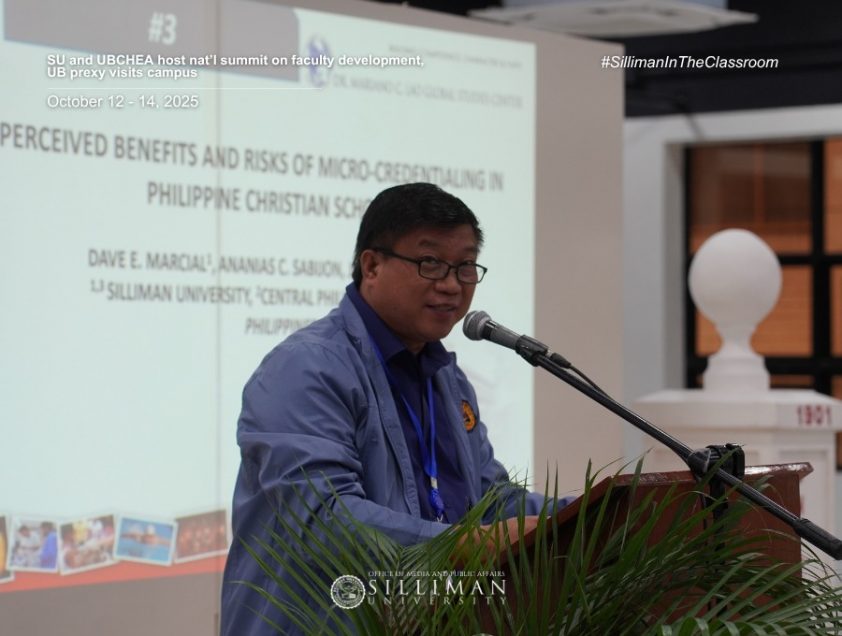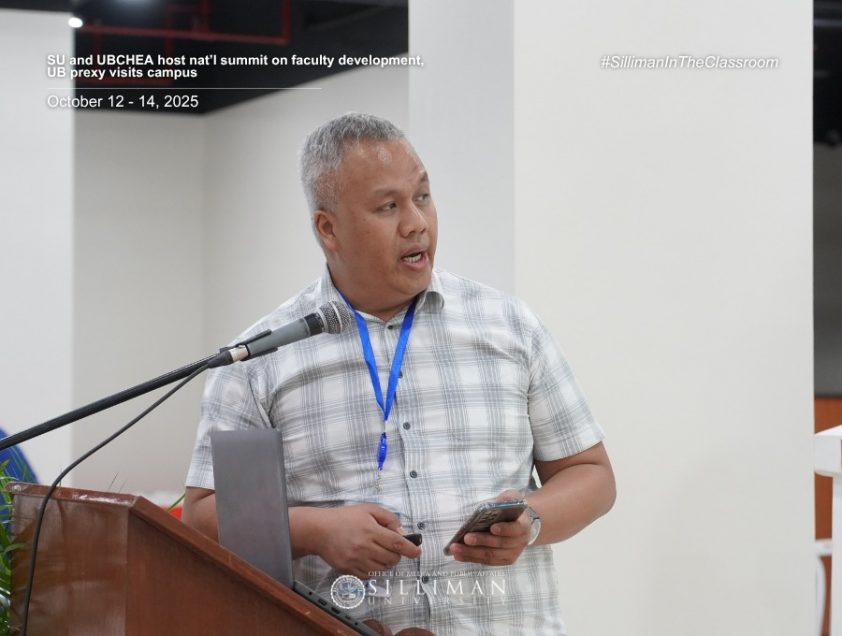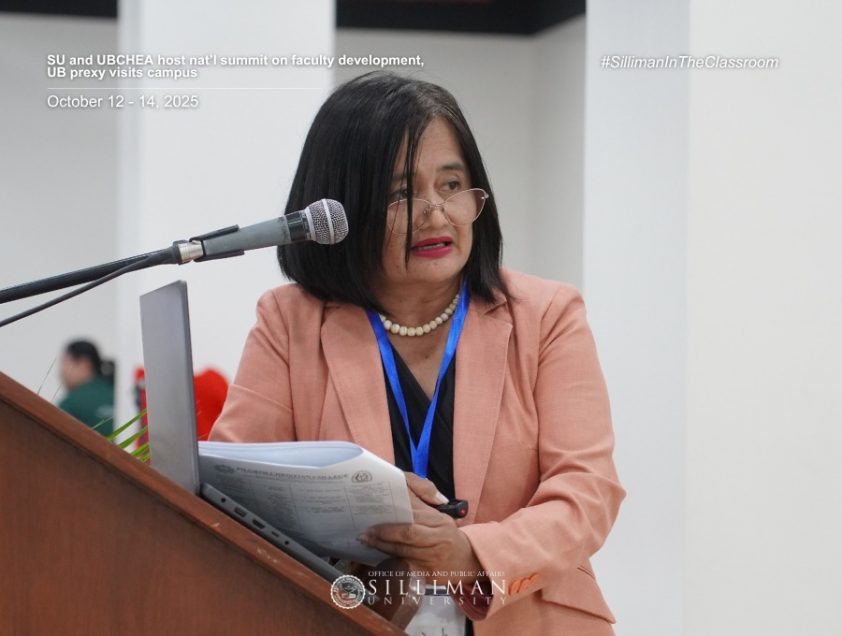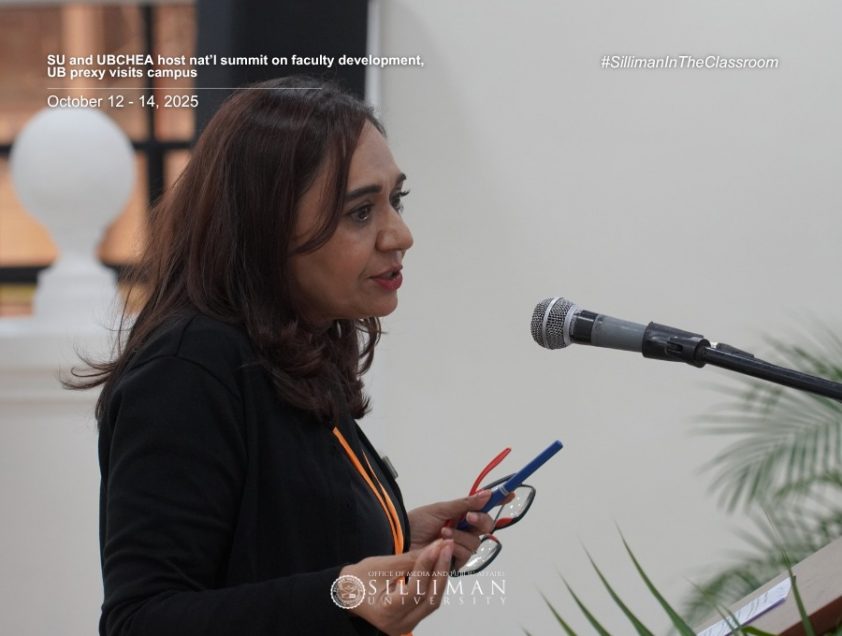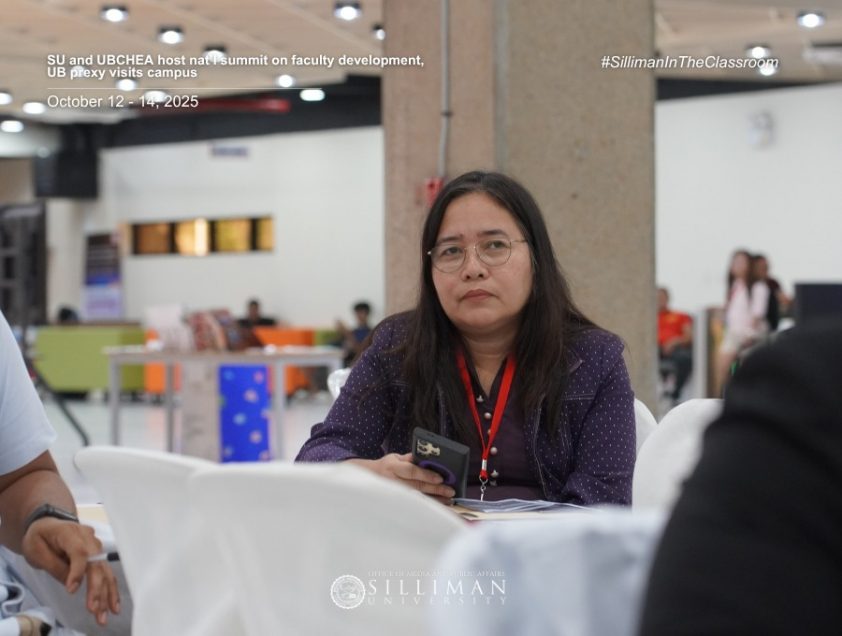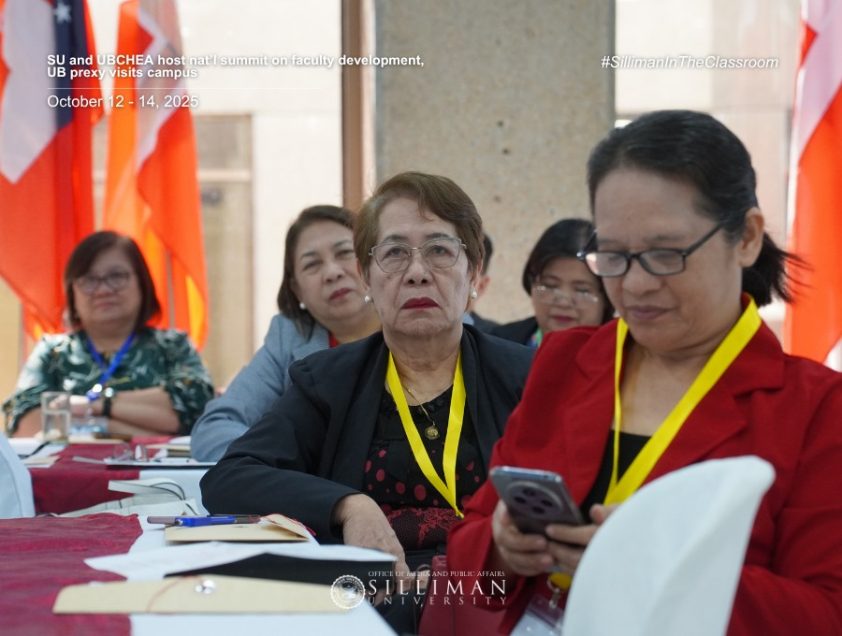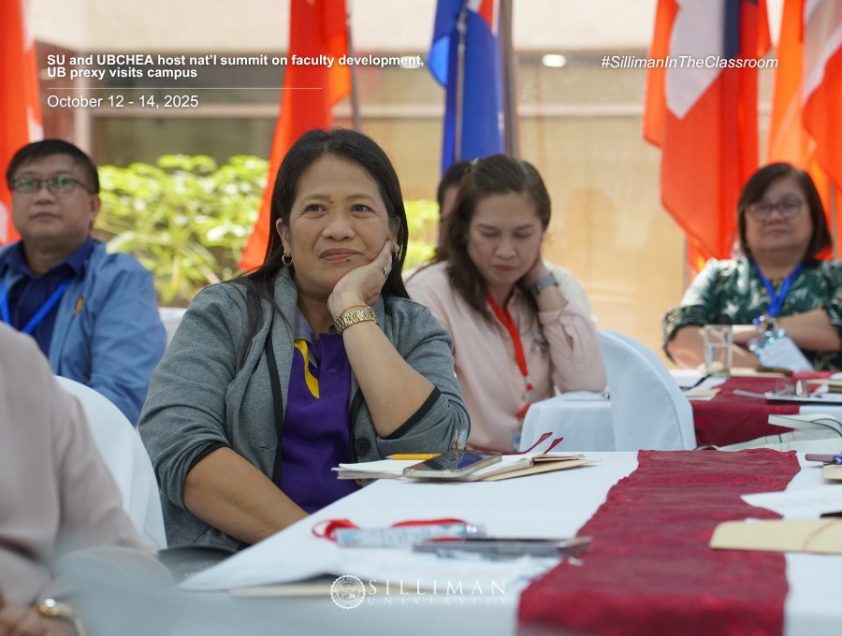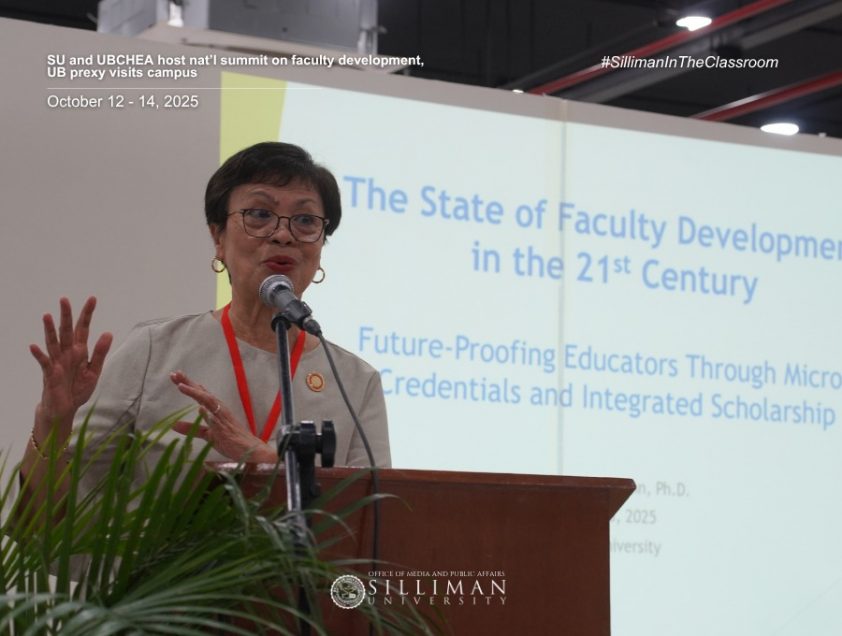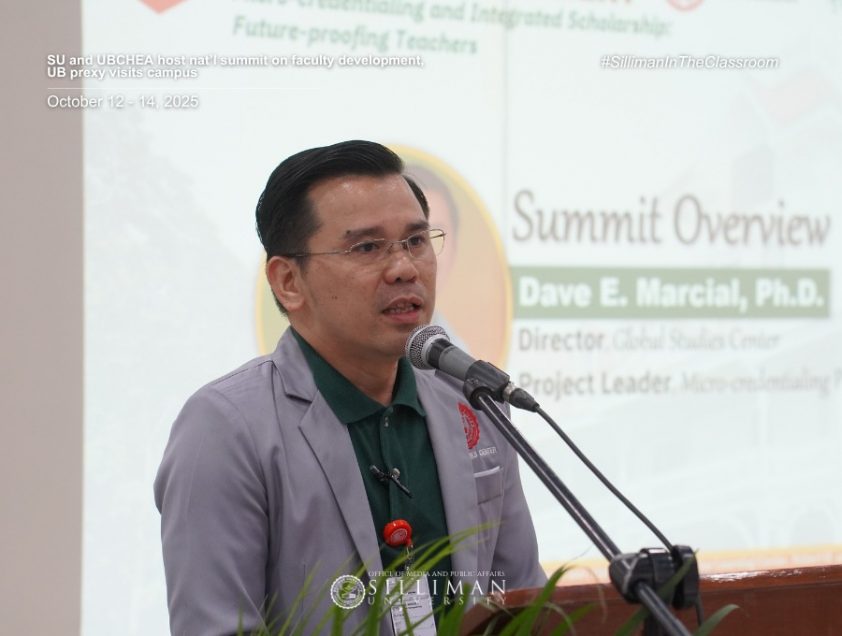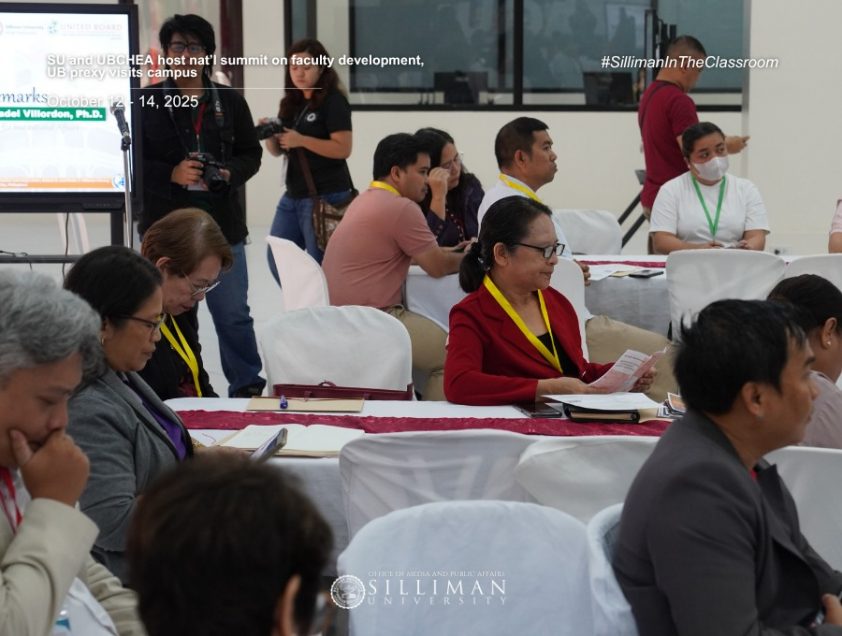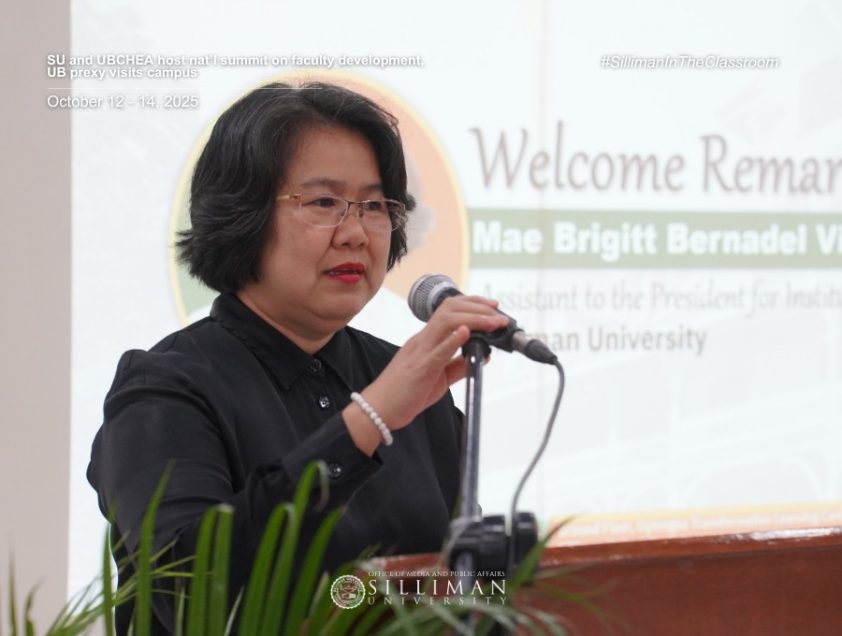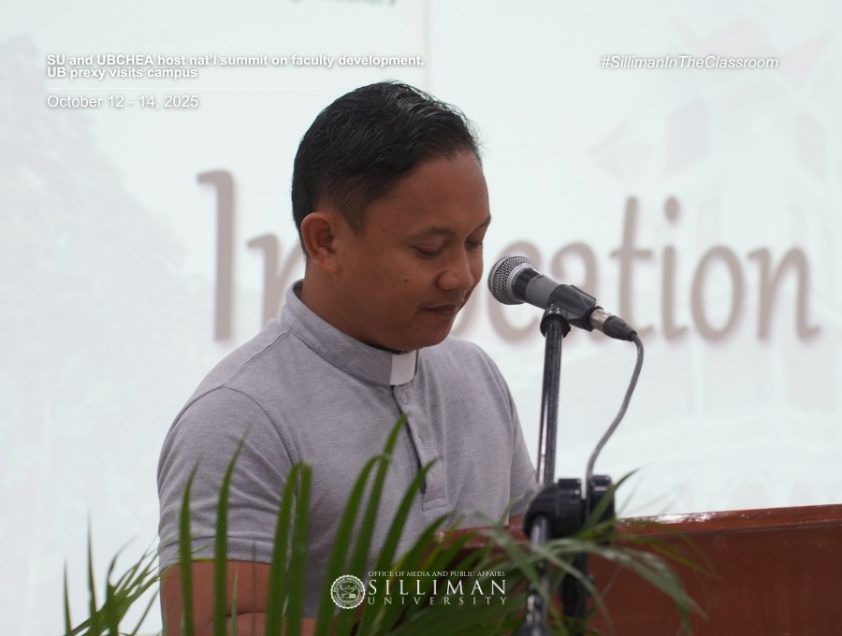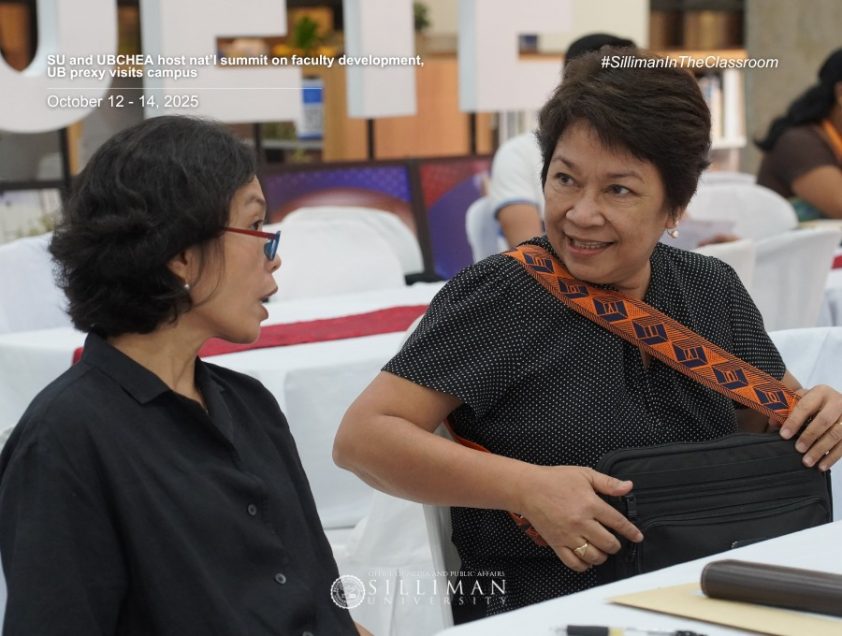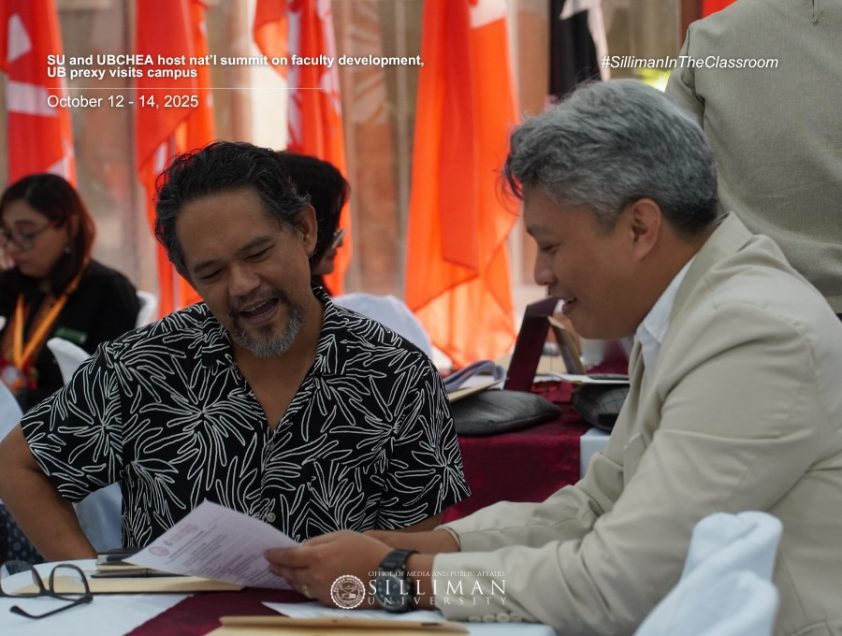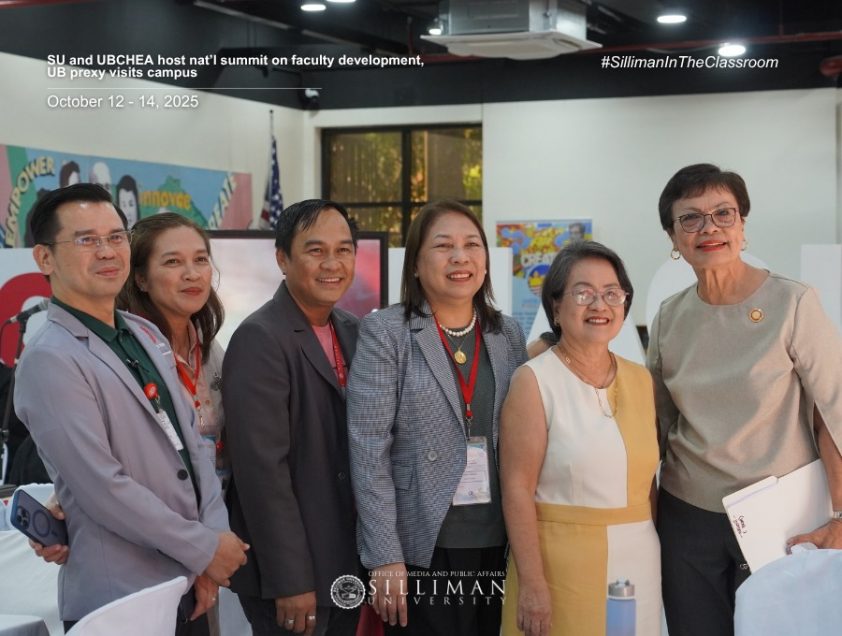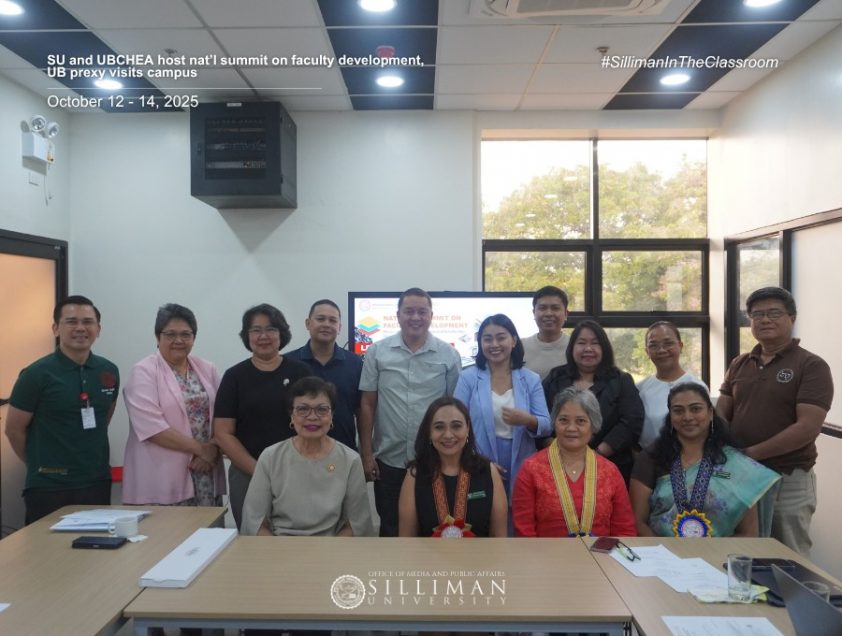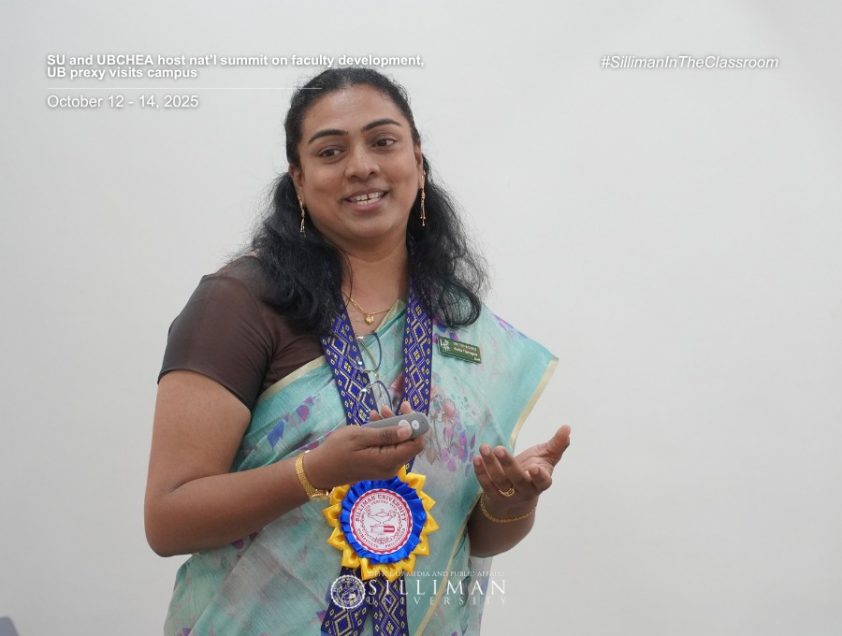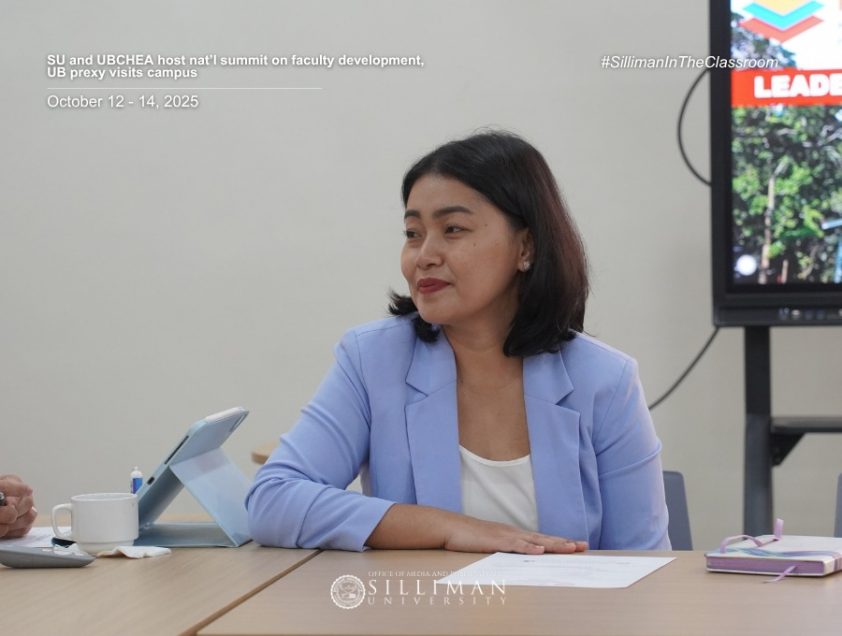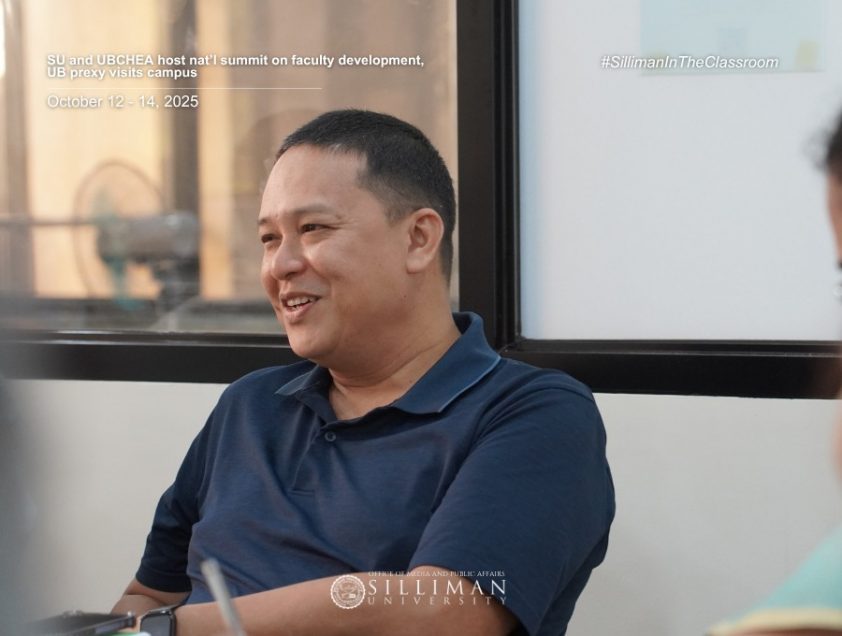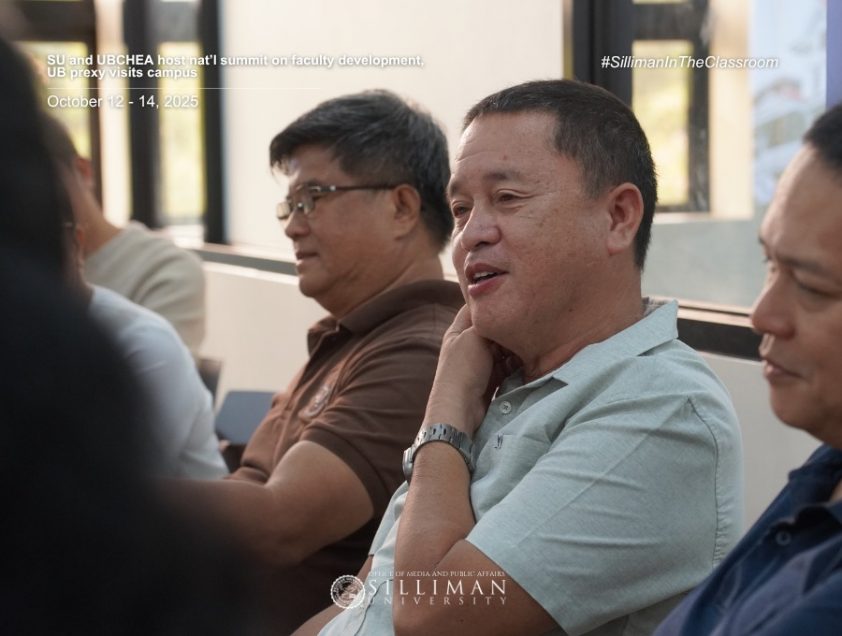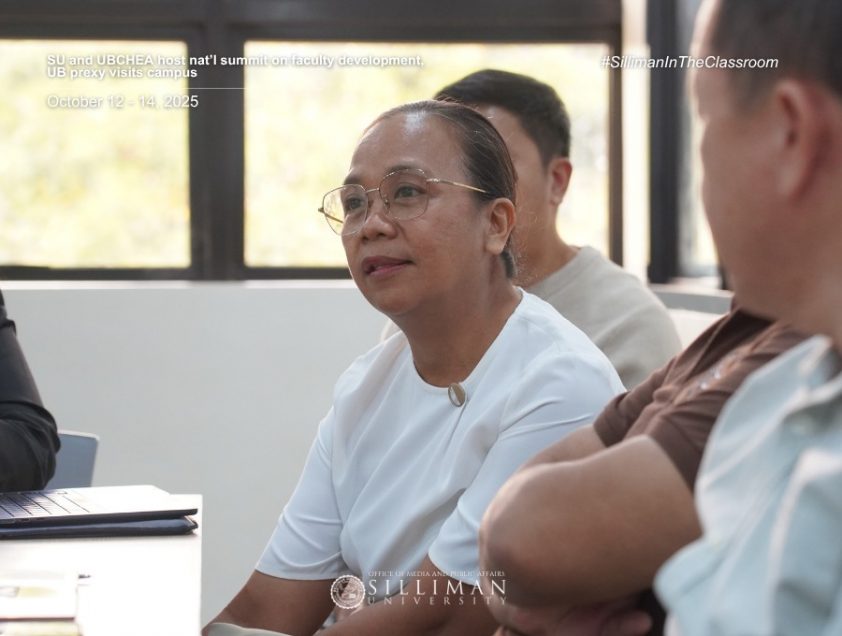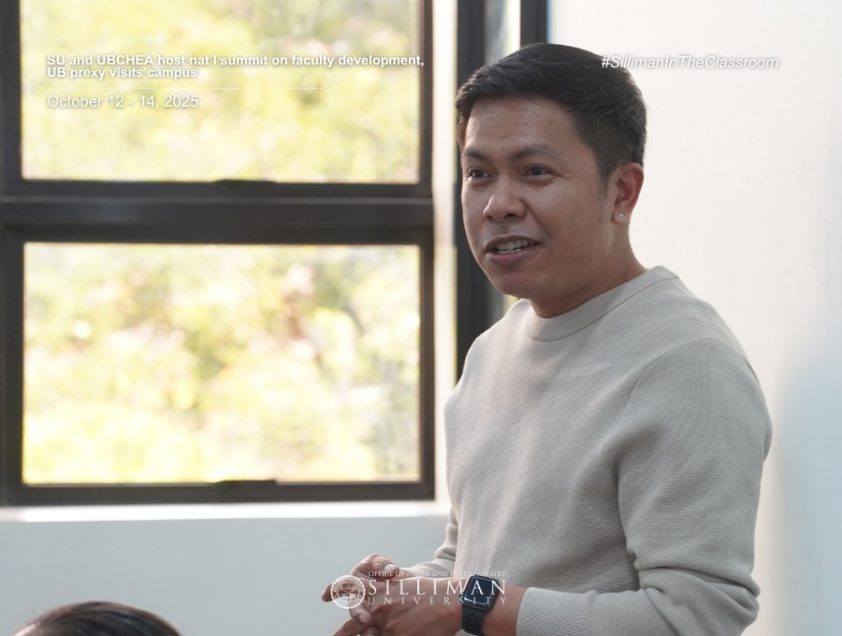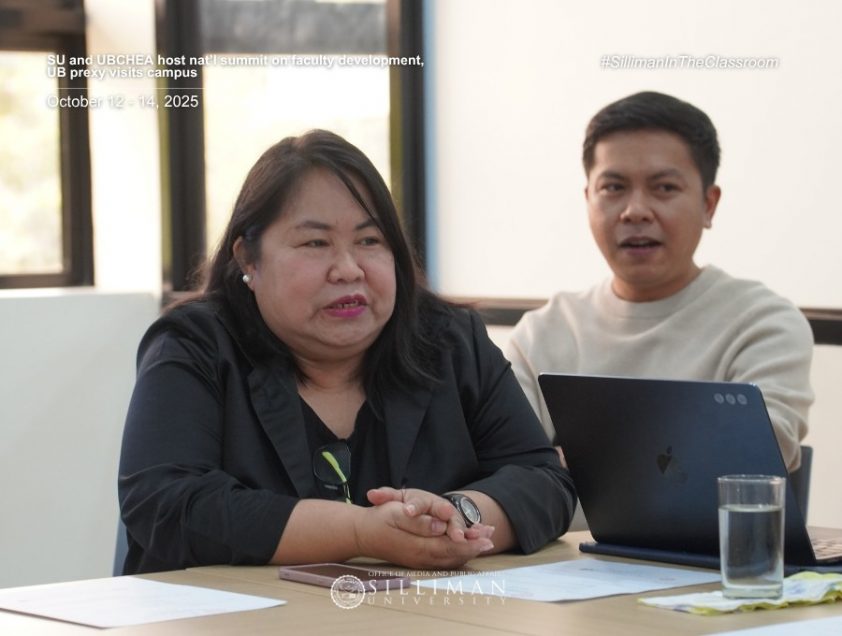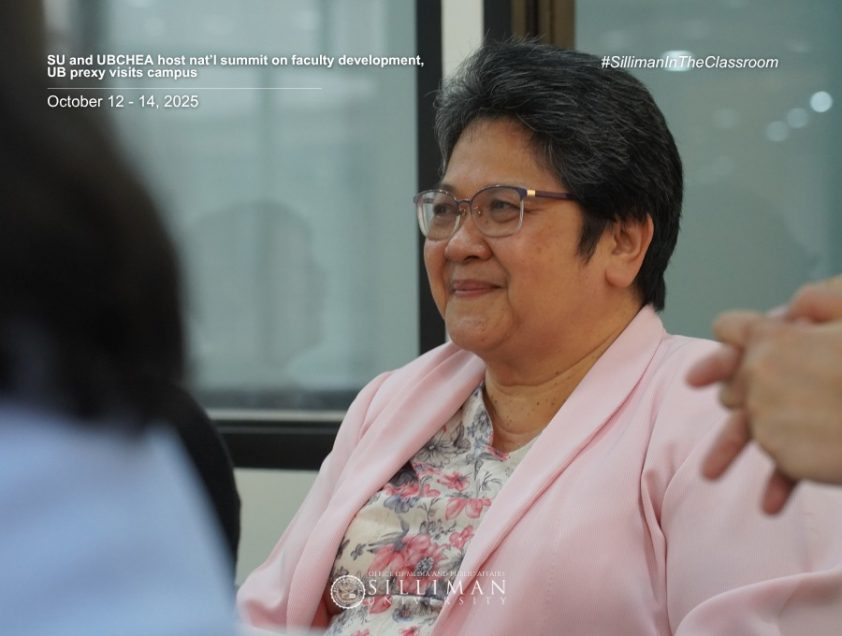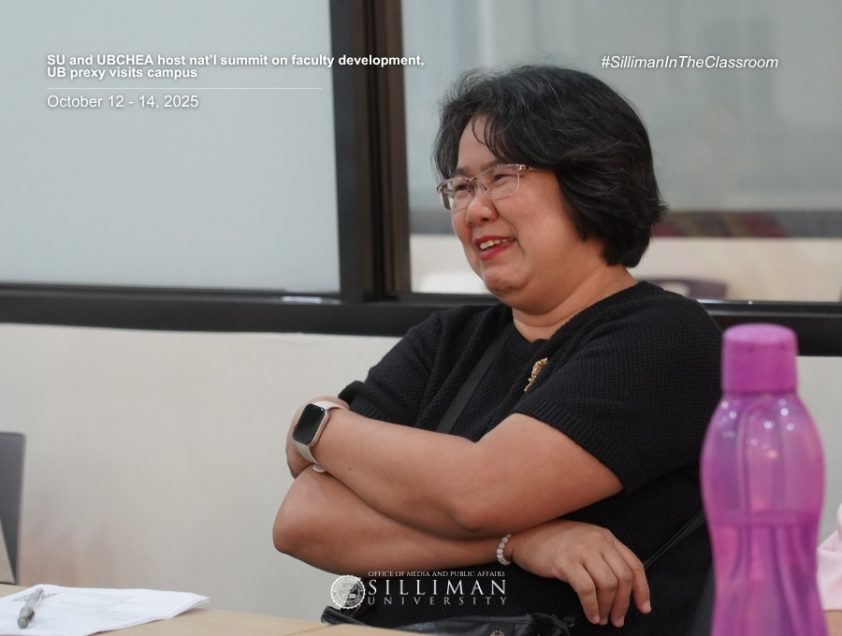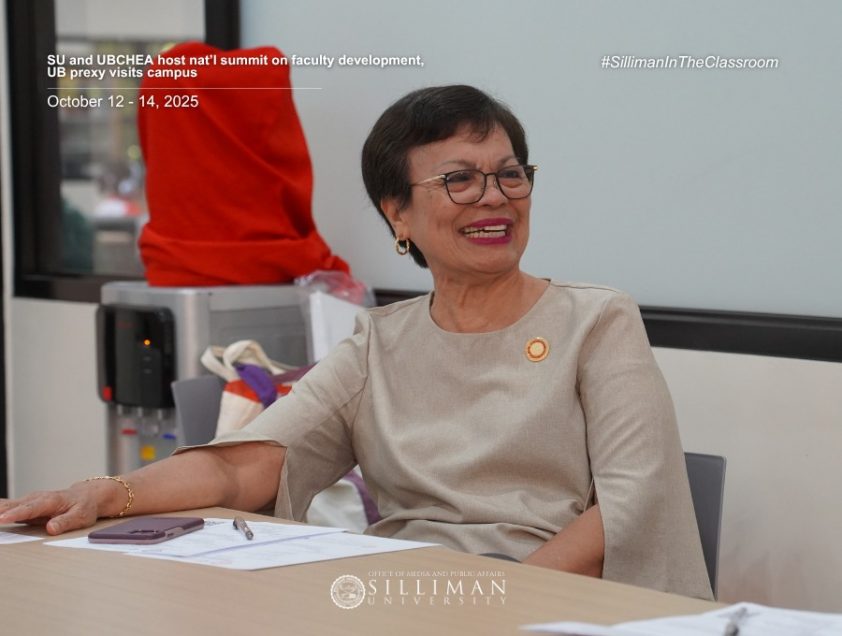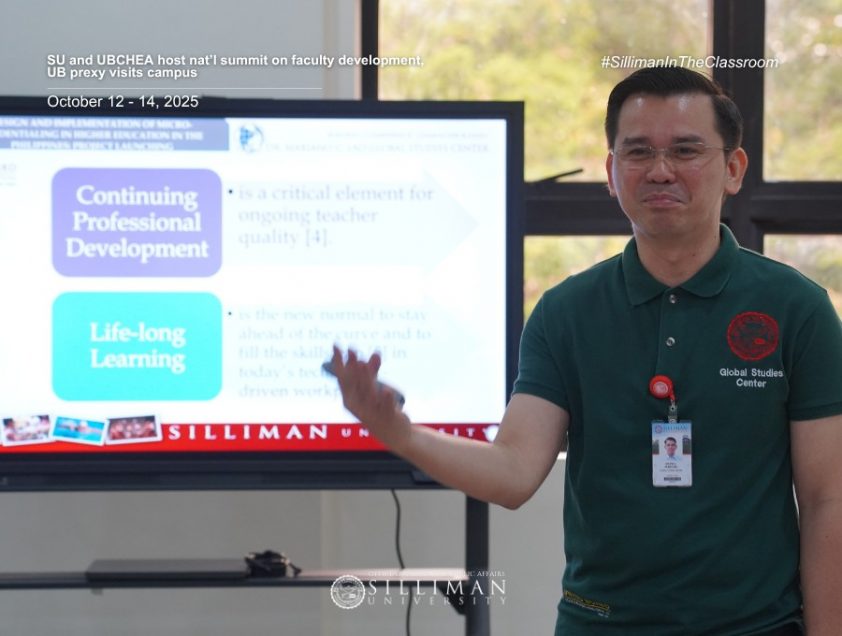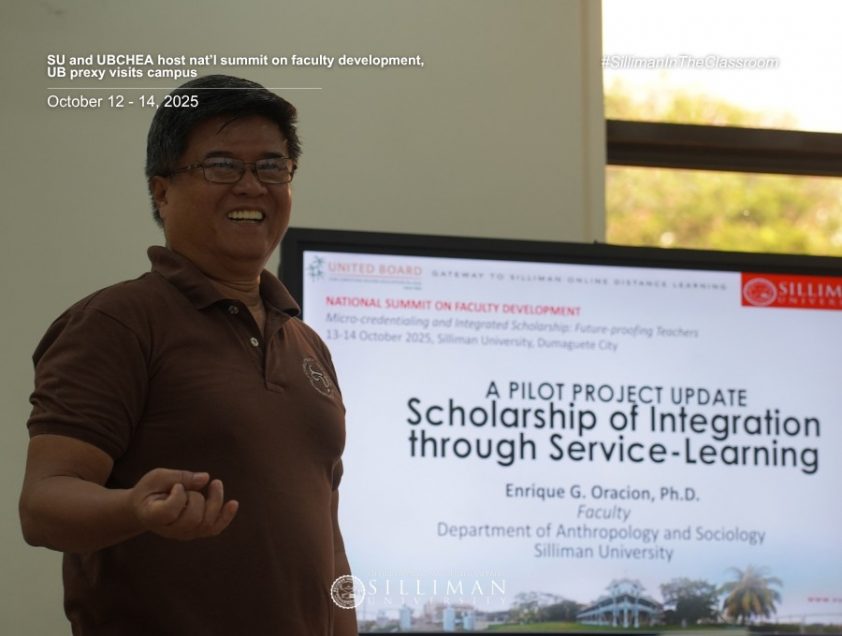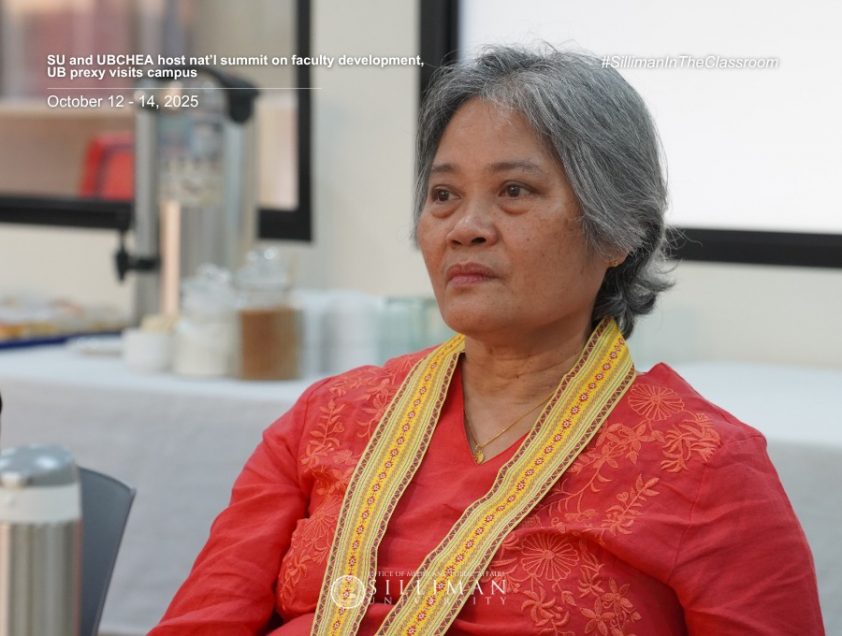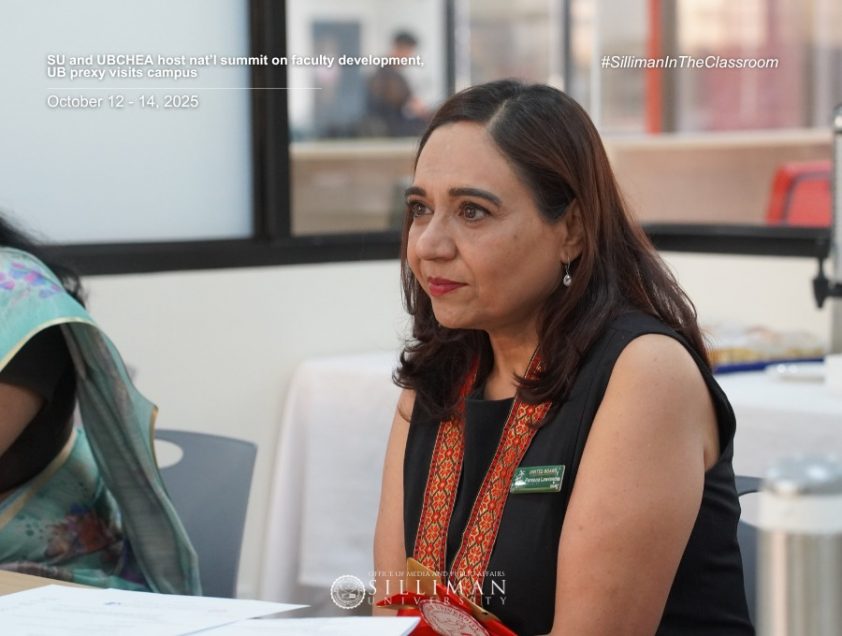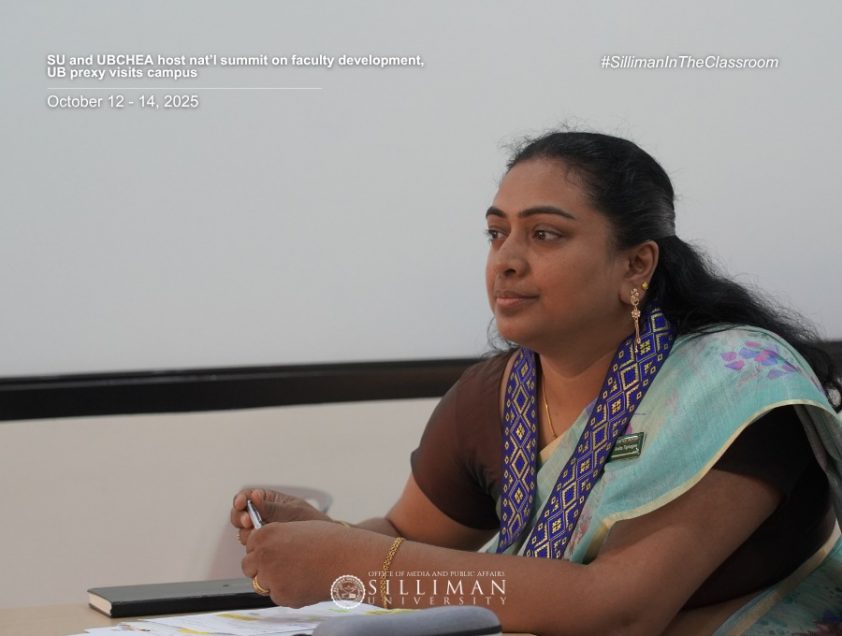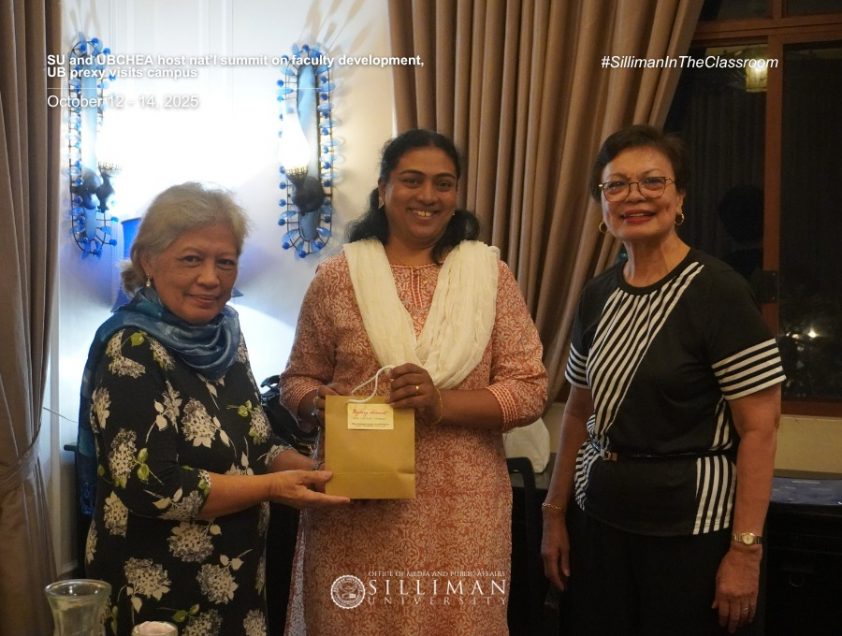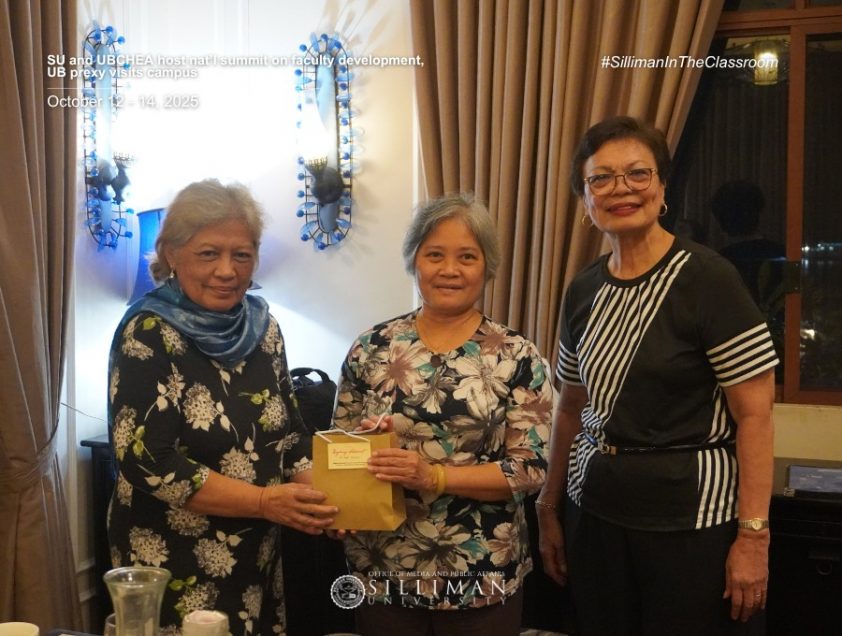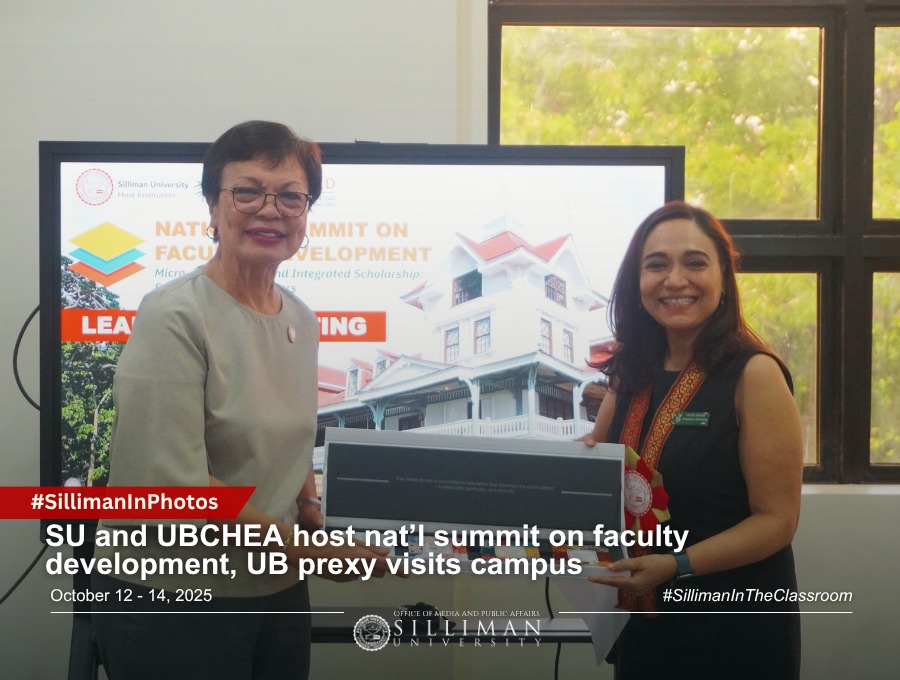
SU and UBCHEA host nat’l summit on faculty development, UB prexy visits campus

Silliman University (SU) and the United Board for Christian Higher Education in Asia (UBCHEA) hosted a two-day National Summit on Faculty Development with the theme, “Micro-credentialing and Integrated Scholarship: Future-proofing Teachers,” on October 13-14, 2025, at the Uytengsu Transformative Learning Center, SU Library.
Dr. Pareena Gupta Lawrence, UBCHEA president, emphasized that two major forces—digital innovation, particularly artificial intelligence (AI), and climate change—will shape the future of higher education. AI is no longer a matter of debate but a permanent part of education, requiring institutions to adopt it ethically and thoughtfully to enhance learning. Similarly, climate change is seen as an urgent global challenge, prompting the organization to expand its concept of “whole person education” to include mental and physical well-being, along with environmental responsibility and care for creation.
According to Lawrence, the United Board, in responding effectively to these challenges, is evolving its programs and resource strategies. With limited resources and faculty having less time for extended international engagements, the organization is shifting toward more flexible, cost-effective digital models rather than long-term fellowships. It is also shifting its grants and initiatives from broad Sustainable Development Goals (SDGs) to more focused environmental projects. At the same time, the United Board has formalized six core values to guide its work: faith, collaboration, stewardship, purpose, adaptability and innovation, and service to those in need.
Meanwhile, Dr. Betty Cernol McCann, SU president, in her keynote address titled, “The State of Faculty Development in the 21st Century,” underscored how faculty development has significantly evolved from its traditional form—where educators would physically relocate for degree programs or training—to modern, technology-enabled, flexible models. While faculty development used to focus mainly on completing advanced degrees and participating in long-term training, this is no longer sustainable due to time, financial constraints, and shifting academic roles. Today, faculty must adapt to rapid technological changes, hybrid learning setups, and altered student behaviors and expectations. Technology, particularly artificial intelligence and digital platforms, has redefined teaching and learning dynamics, making it essential for faculty to stay agile, responsive, and equipped with digital literacy.
In response to contemporary challenges such as insufficient time, limited resources, and the need for personalized training, SU advocates for microcredentialing and integrated scholarship as modern faculty development approaches. Microcredentials offer modular, stackable, flexible training tailored to specific skills and emerging competencies such as AI, digital literacy, and diversity, equity, and inclusion (DEI). These credentials are portable, self-paced, and responsive to real-world demands, allowing faculty to gain recognition and career advancement without undergoing full degree programs. Meanwhile, integrated scholarship encourages faculty to combine teaching, research, and community service in a reflective and socially grounded manner, producing knowledge rooted in local experiences and addressing community needs, rather than treating each component as a separate academic task.
Finally, McCann challenged educators and institutions to ask: What strategies are working in your context, and how are you preparing your faculty for the future?
Before the summit, Lawrence, alongside Dr. Anita Christine Tiphagne and Dr. Hope Antone from UBCHEA, met with former UB fellows and scholars during a closed-door meeting facilitated by Dr. Dave E. Marcial, Global Studies Center (GSC) director and former UB fellow.
In his rationale for the summit, Marcial explained its two foundational concepts: microcredentials and integrated scholarship. It aimed to equip educators and institutions to become part of a broader advocacy of shaping future-ready teachers who are competent, ethical, collaborative, and deeply committed to holistic education.
The first part of the summit focused on microcredentialing. Discussions explored policies, trends, digital badging systems, benefits, risks, and how microcredentials can align institutions with global standards while promoting lifelong learning. The second day transitioned to an integrated scholarship approach, emphasizing the convergence of teaching, research, and community service in defining the identity of scholar-educators.
Through live sessions and digital presentations, various institutions showcased innovative practices that connect classrooms to communities and theory to real-world transformation. It culminated in a commitment-signing ceremony to establish a National Microcredential Network, a collaborative pledge to shared standards, resources, and a sustainable faculty development ecosystem.
Institutions present at the summit included ACSCU partners such as Central Philippine University – Iloilo, Pilgrim Christian College, Trinity University of Asia, Brokenshire College SOCCSKSARGEN, Inc., Filamer Christian University, Philippine Nazarene College, and Southland College of Kabankalan City, Inc.
Also present were partners from the Asian University Digital Resource Network (AUDRN), including University of the Cordilleras – Baguio, St. Paul University Dumaguete (SPUD), Visayas State University – Baybay, Leyte, Ateneo de Zamboanga, Miriam College, San Sebastian College – Recoletos, STI West Negros University, and University of St. La Salle Bacolod.
Partners from the Negros Island also attended the event, such as SPUD, Foundation University, and Colegio de Santa Catalina de Alejandria.
